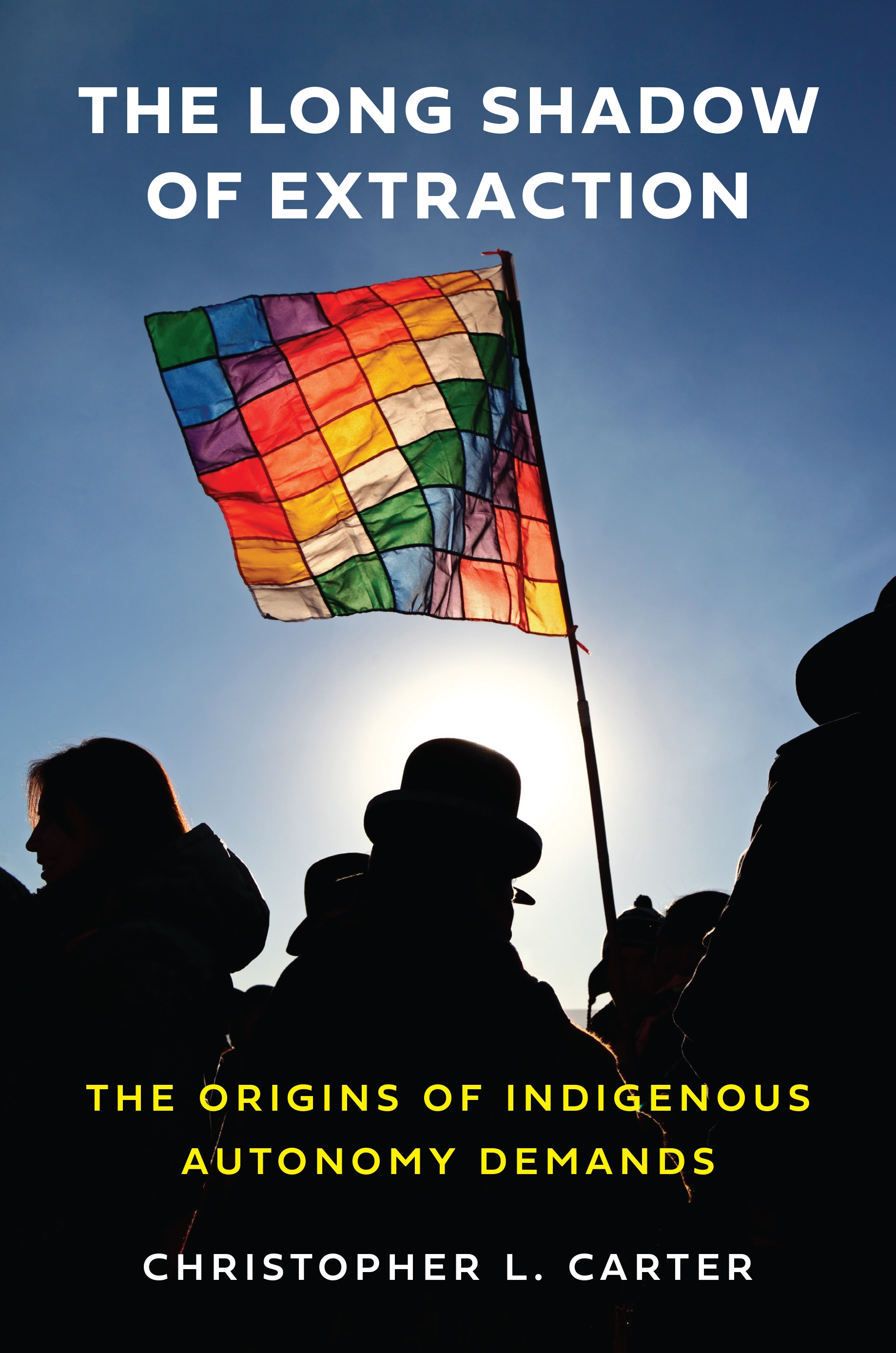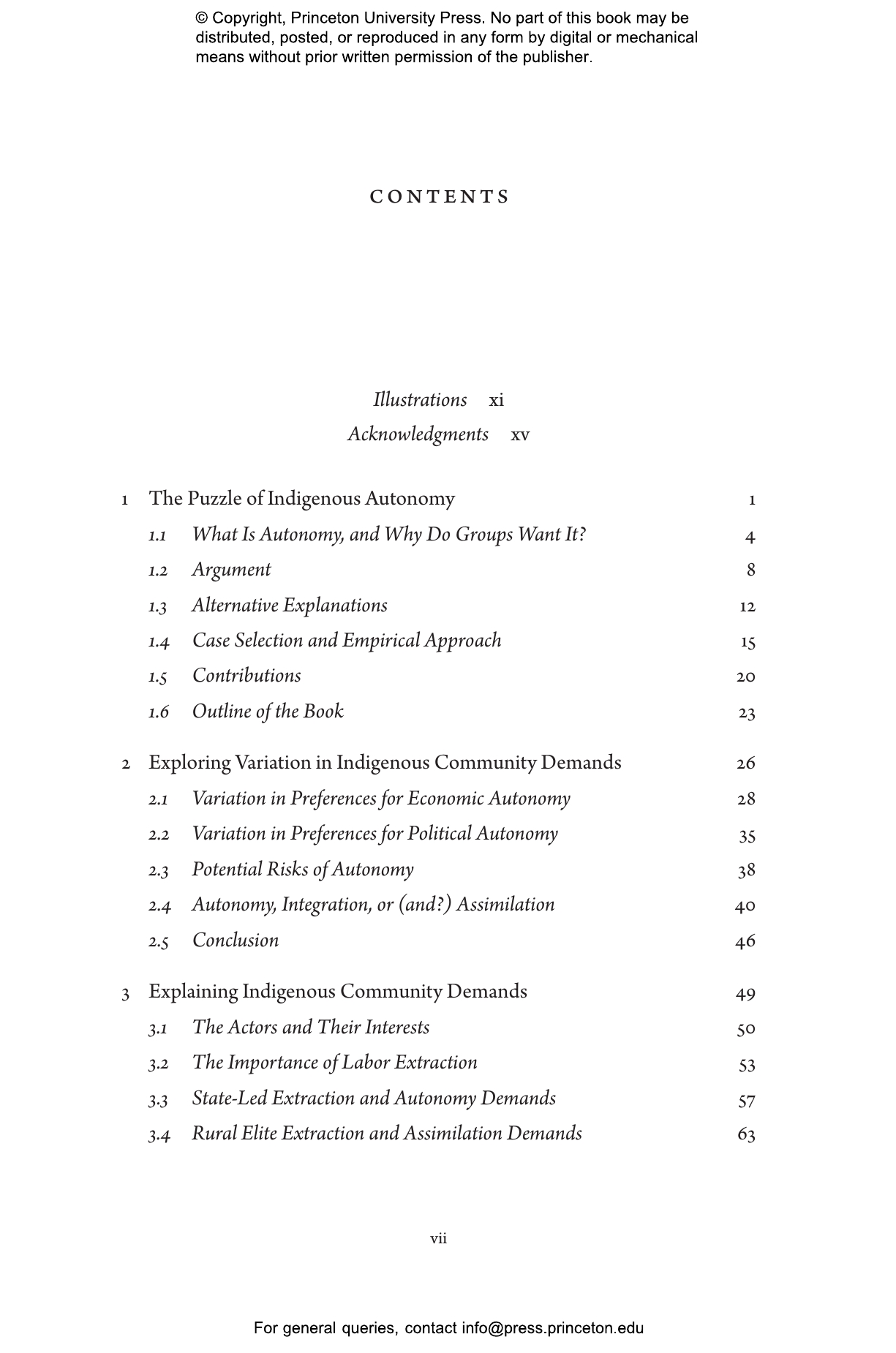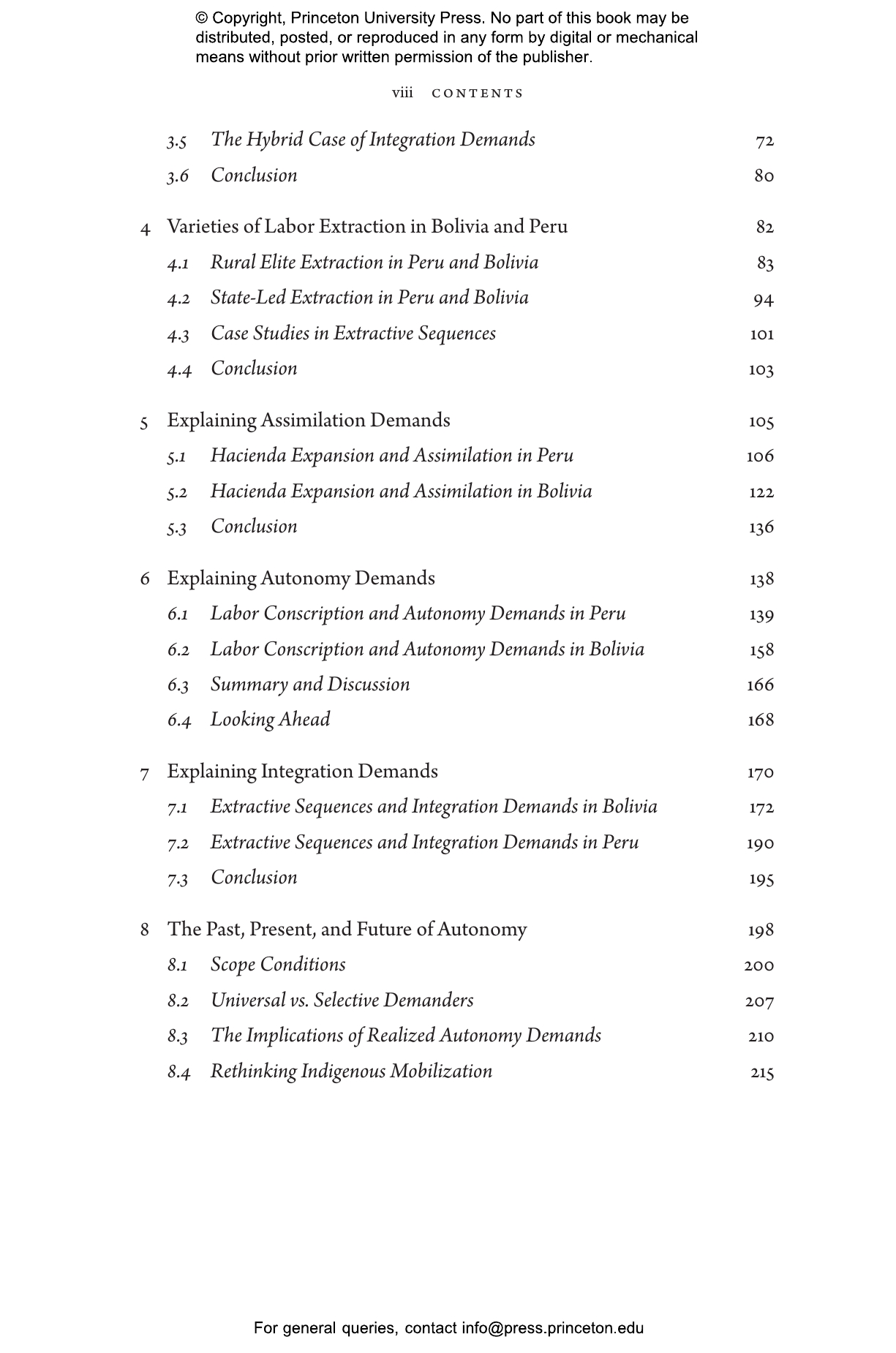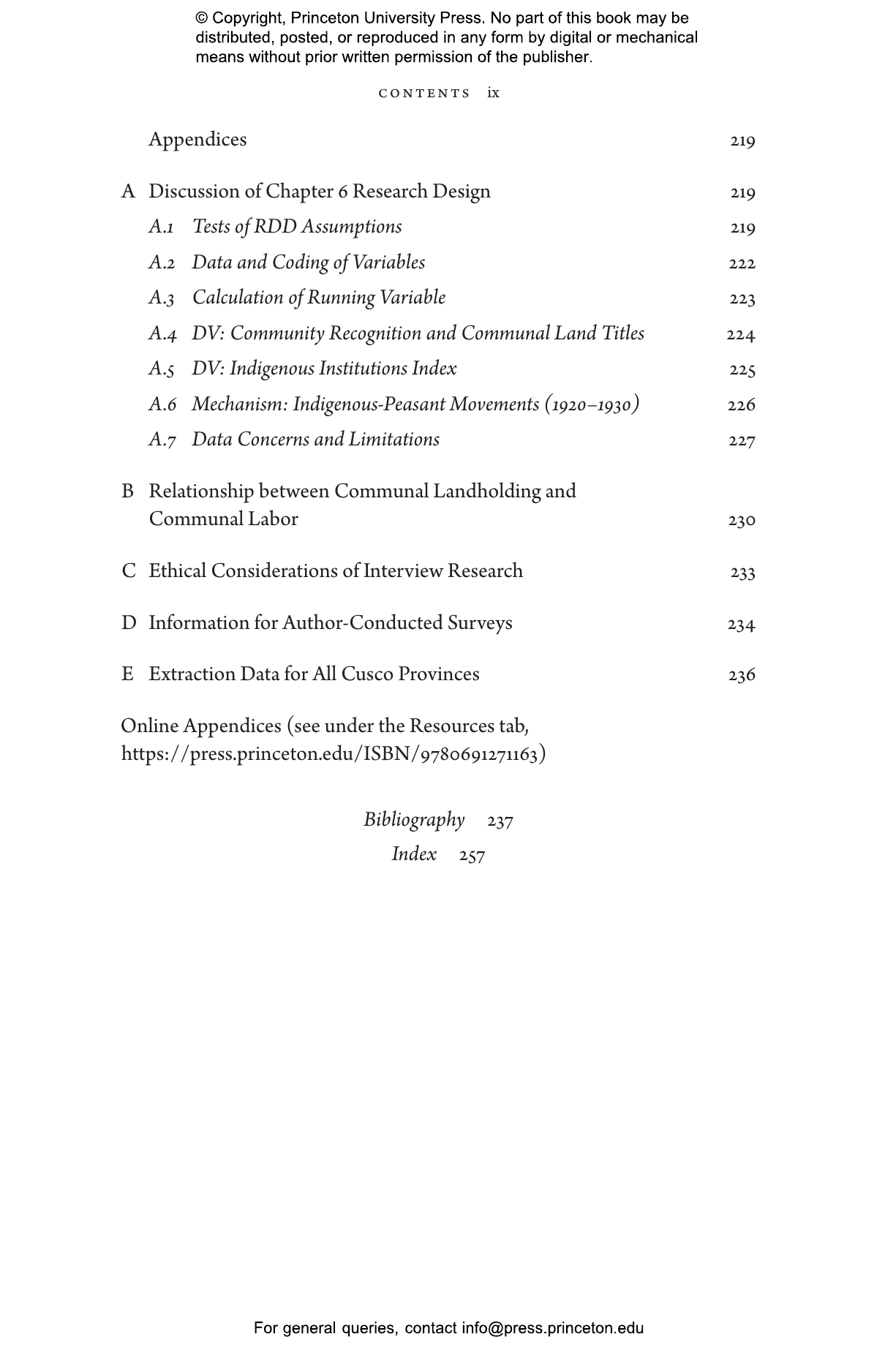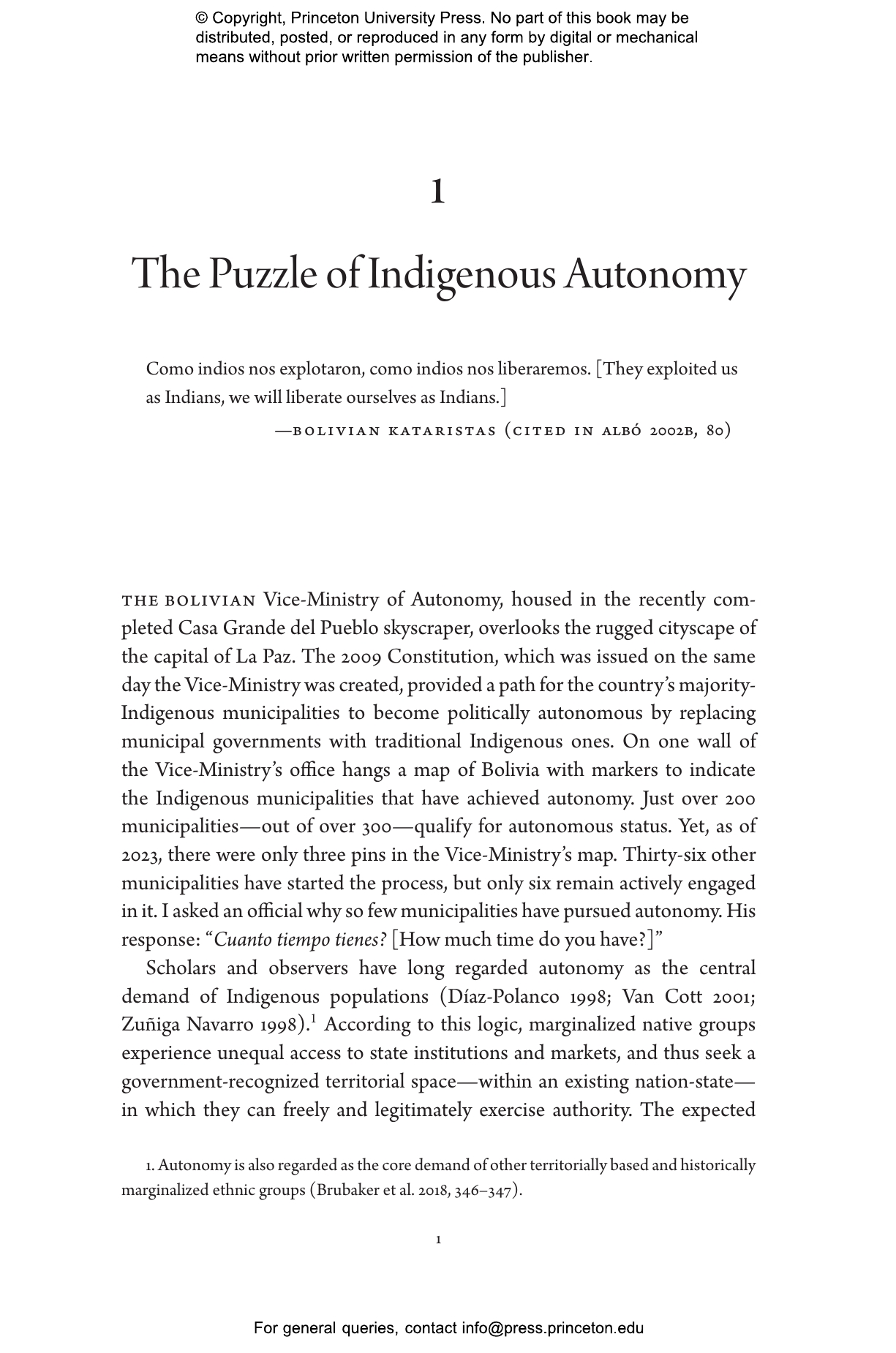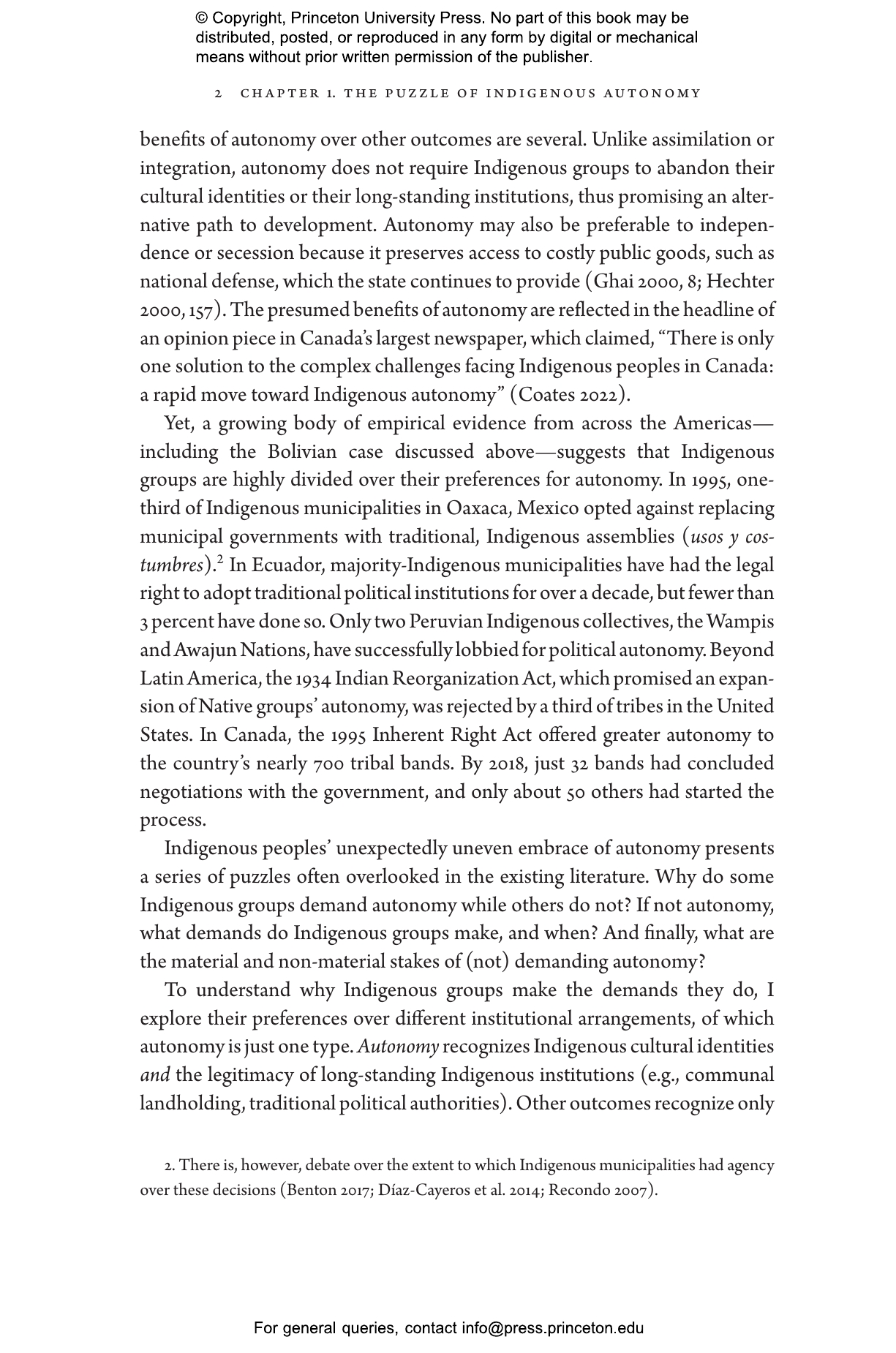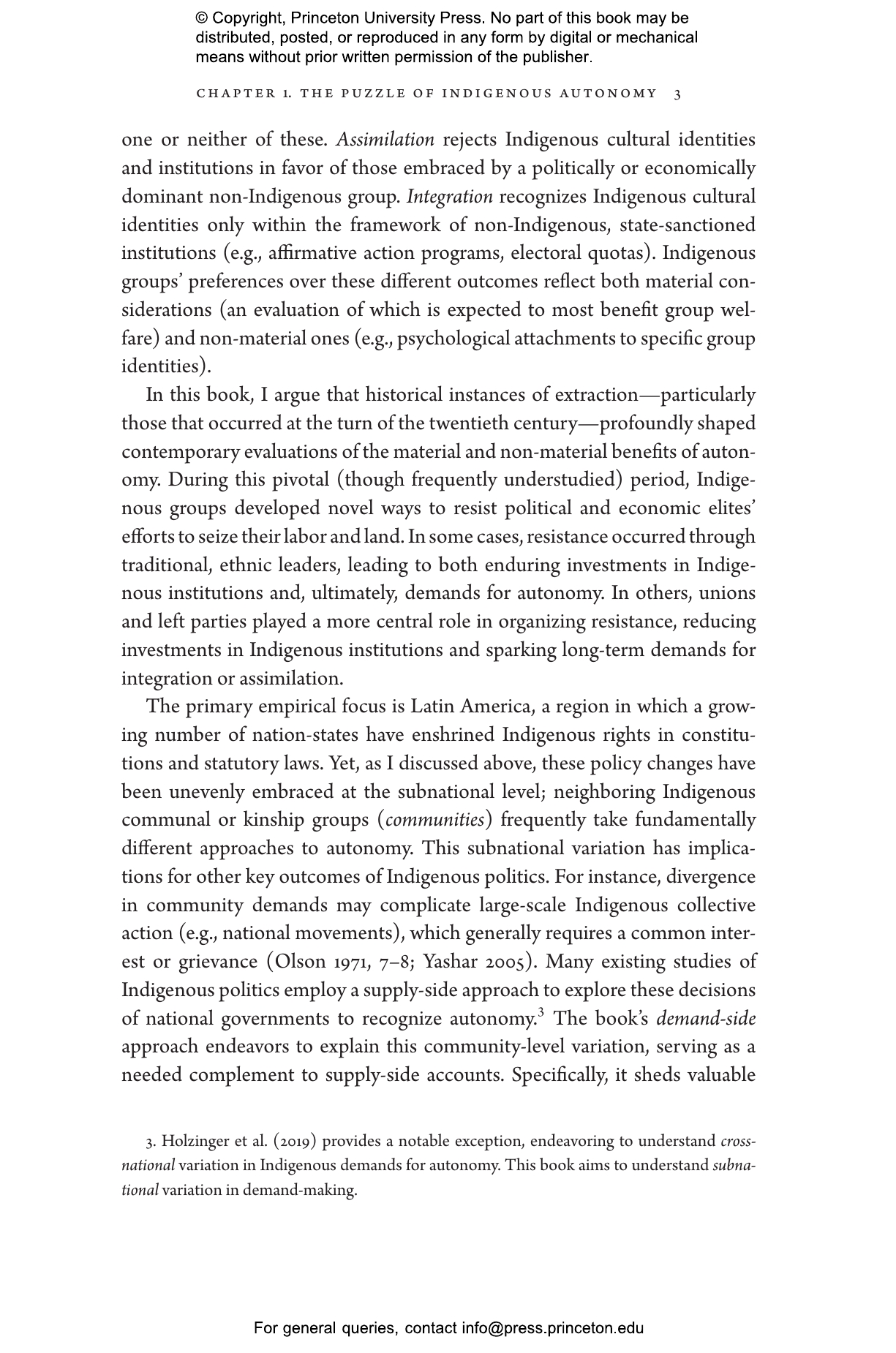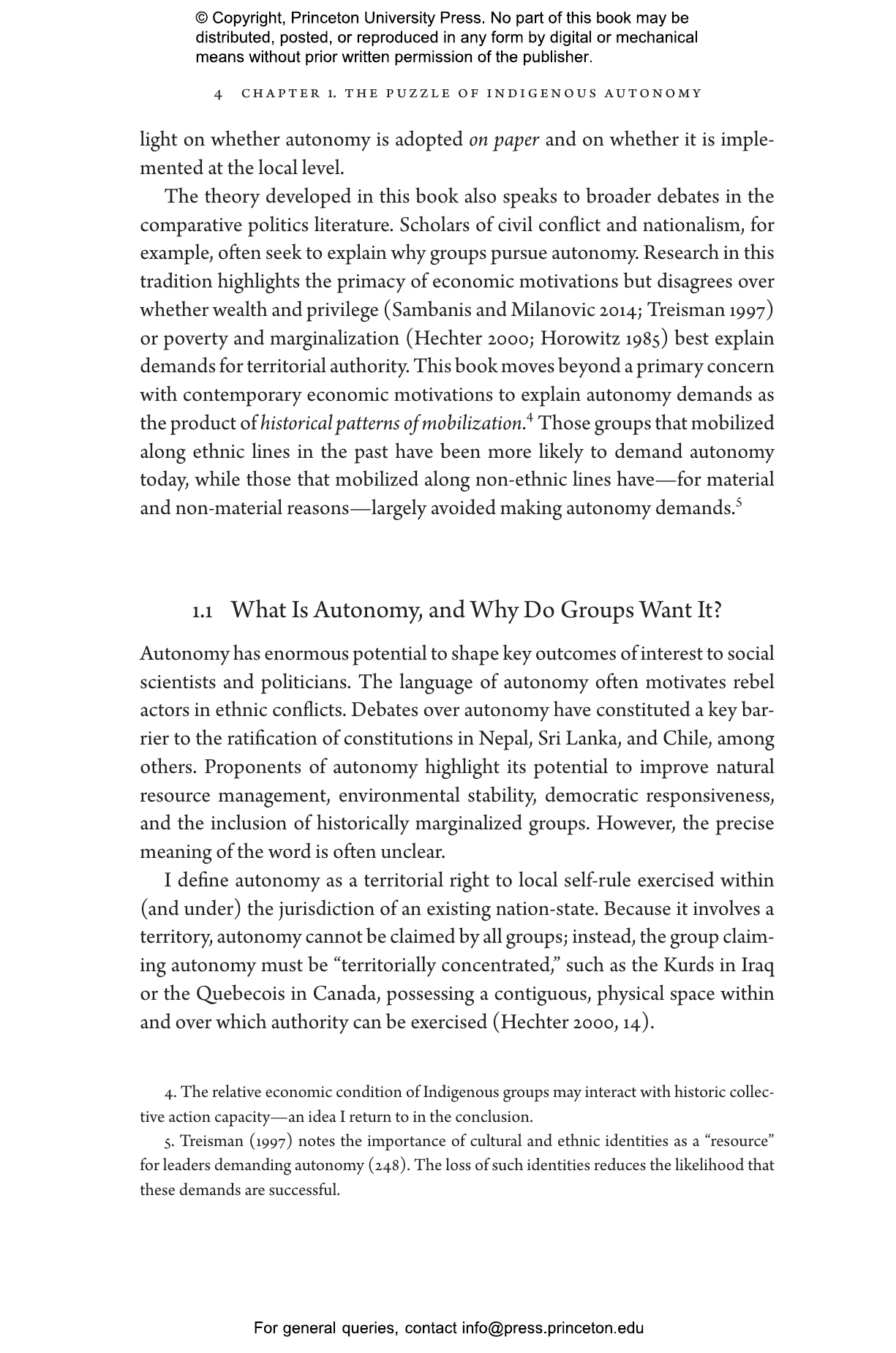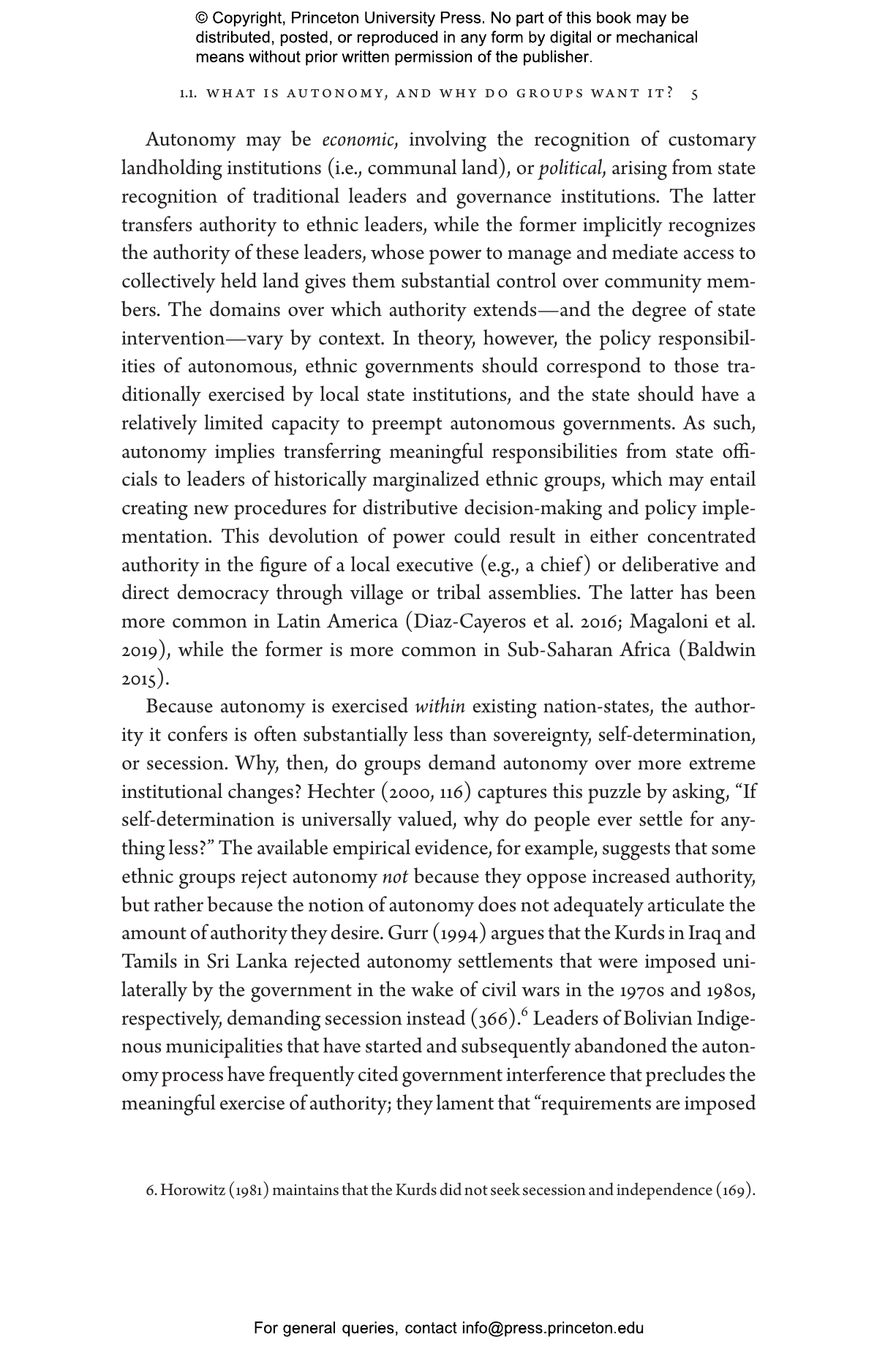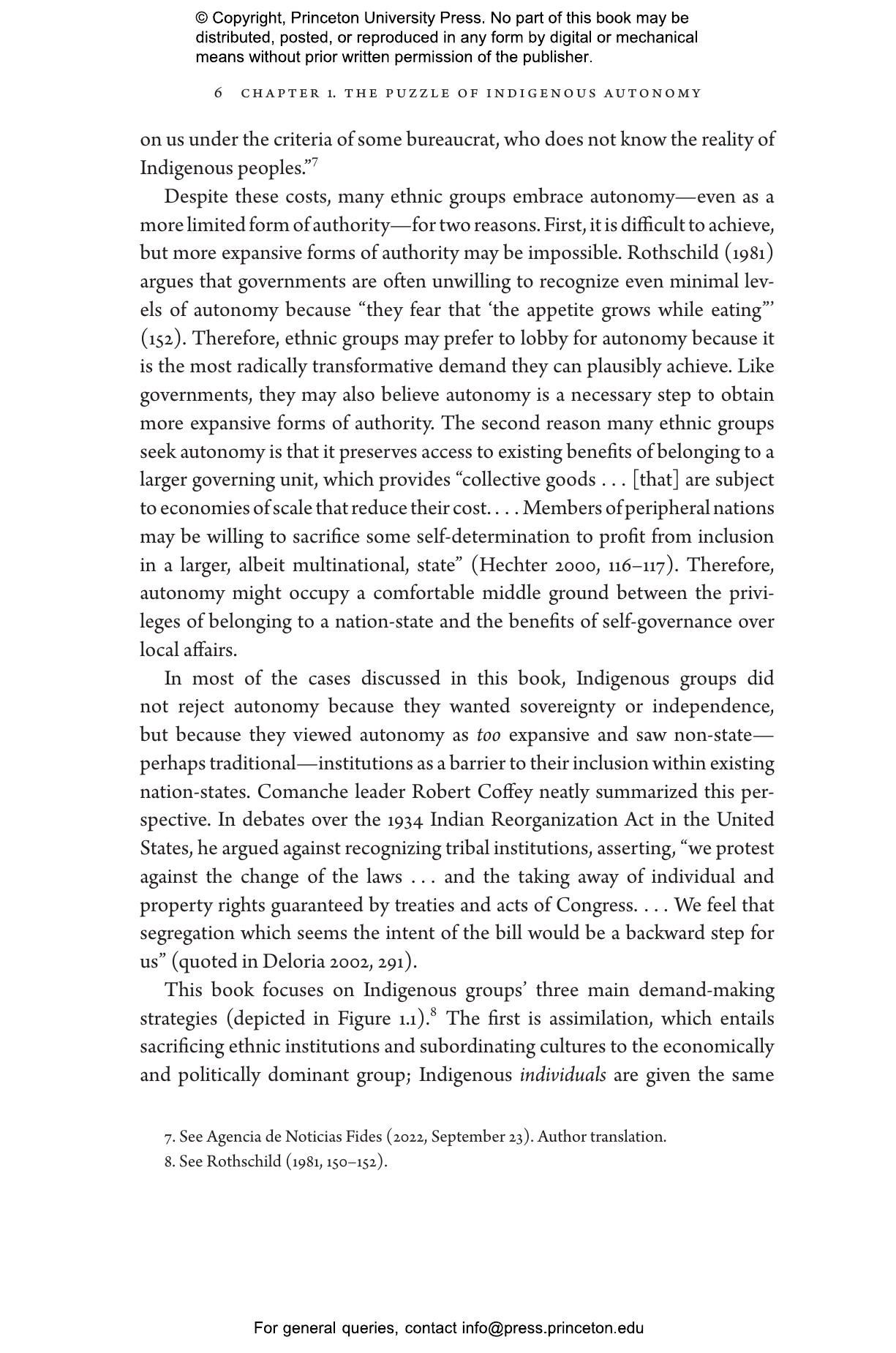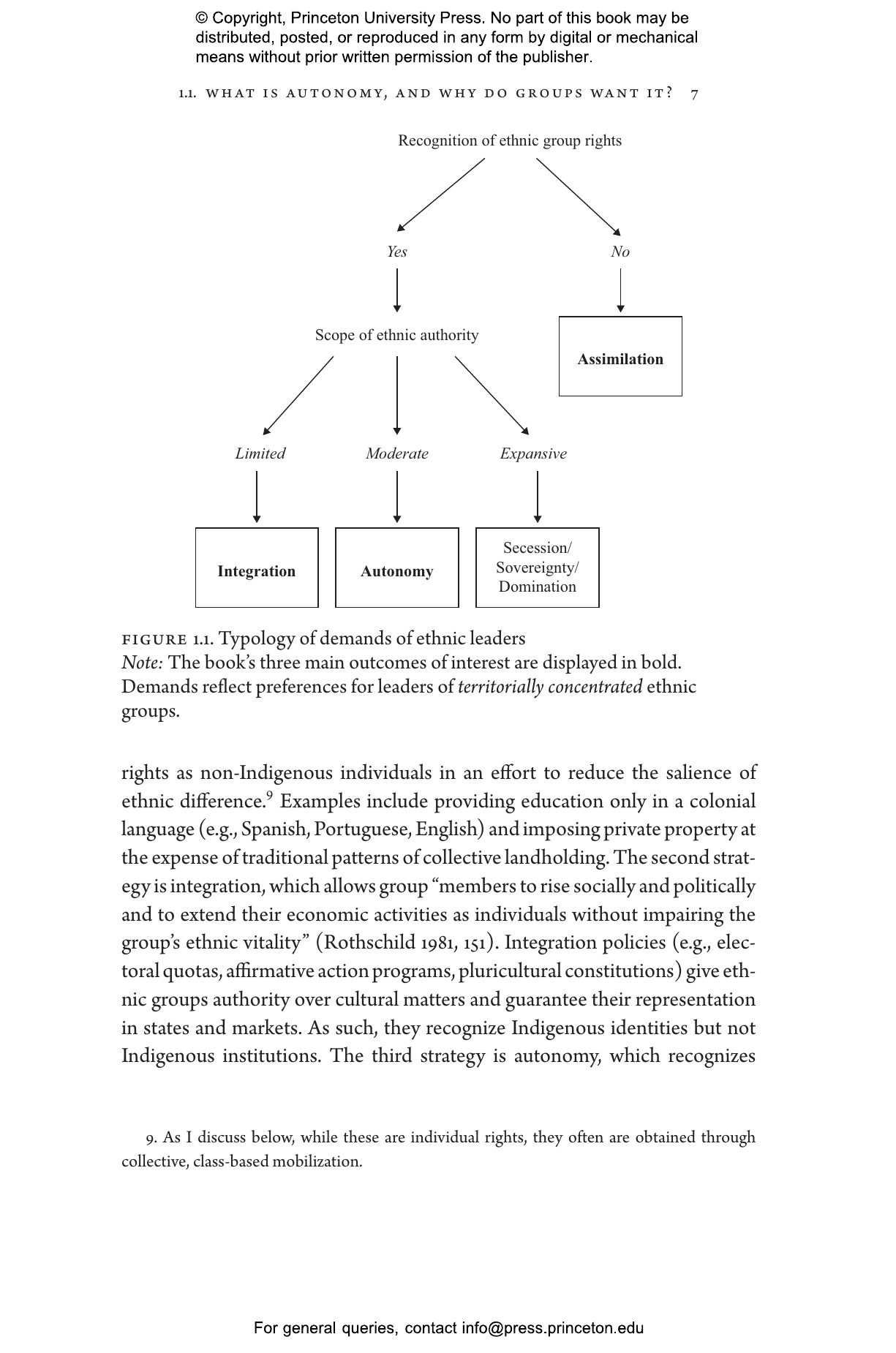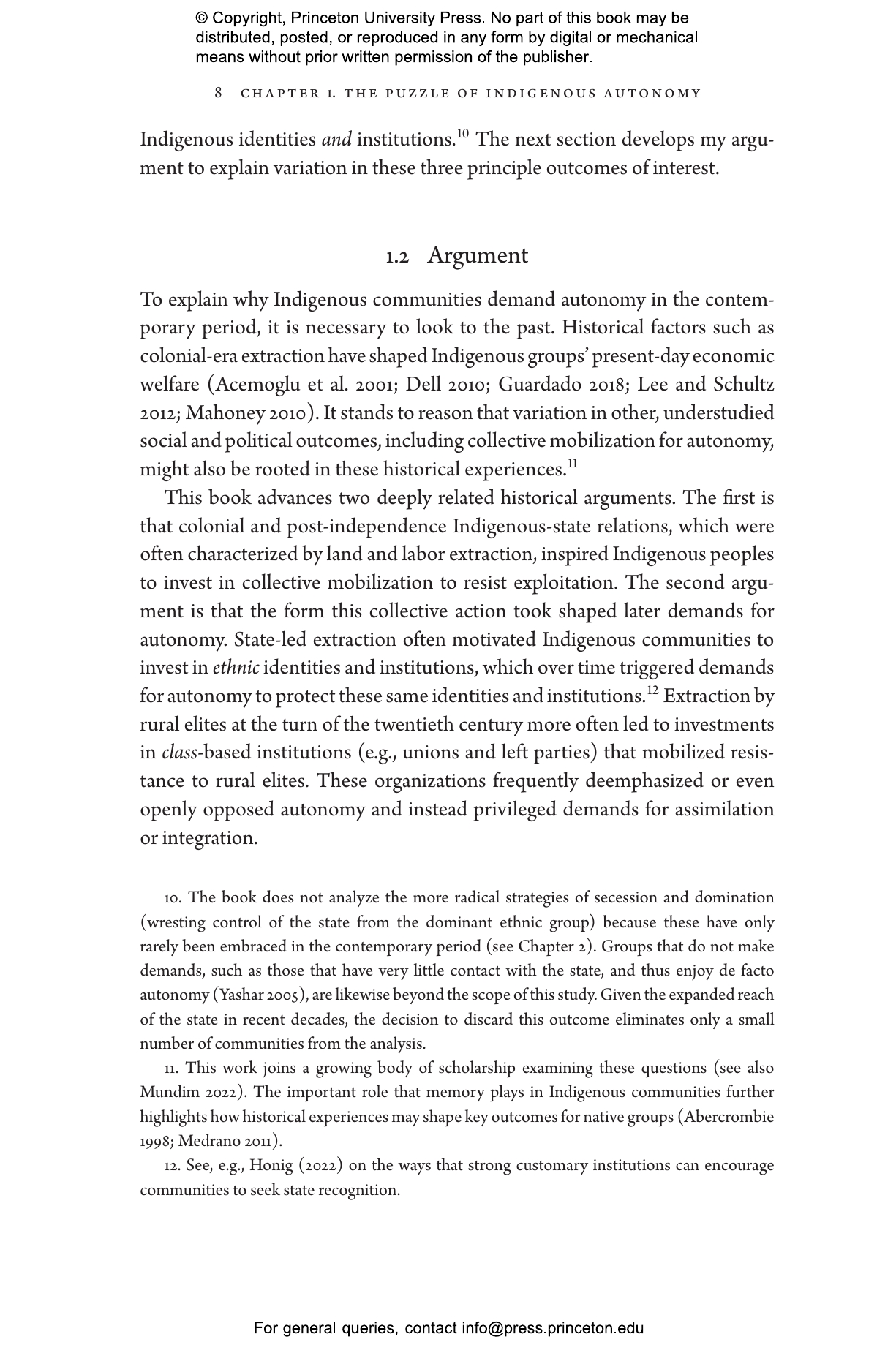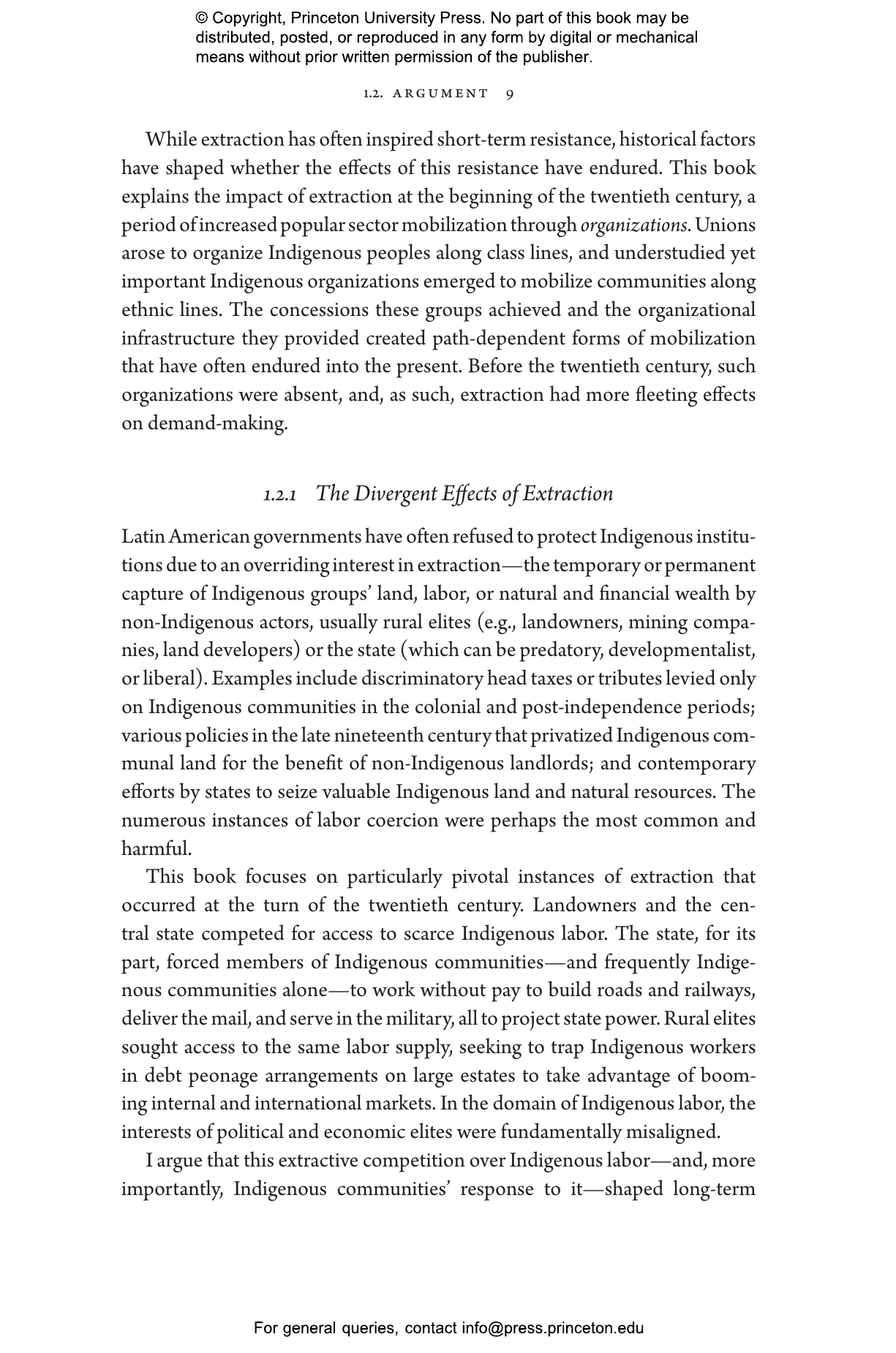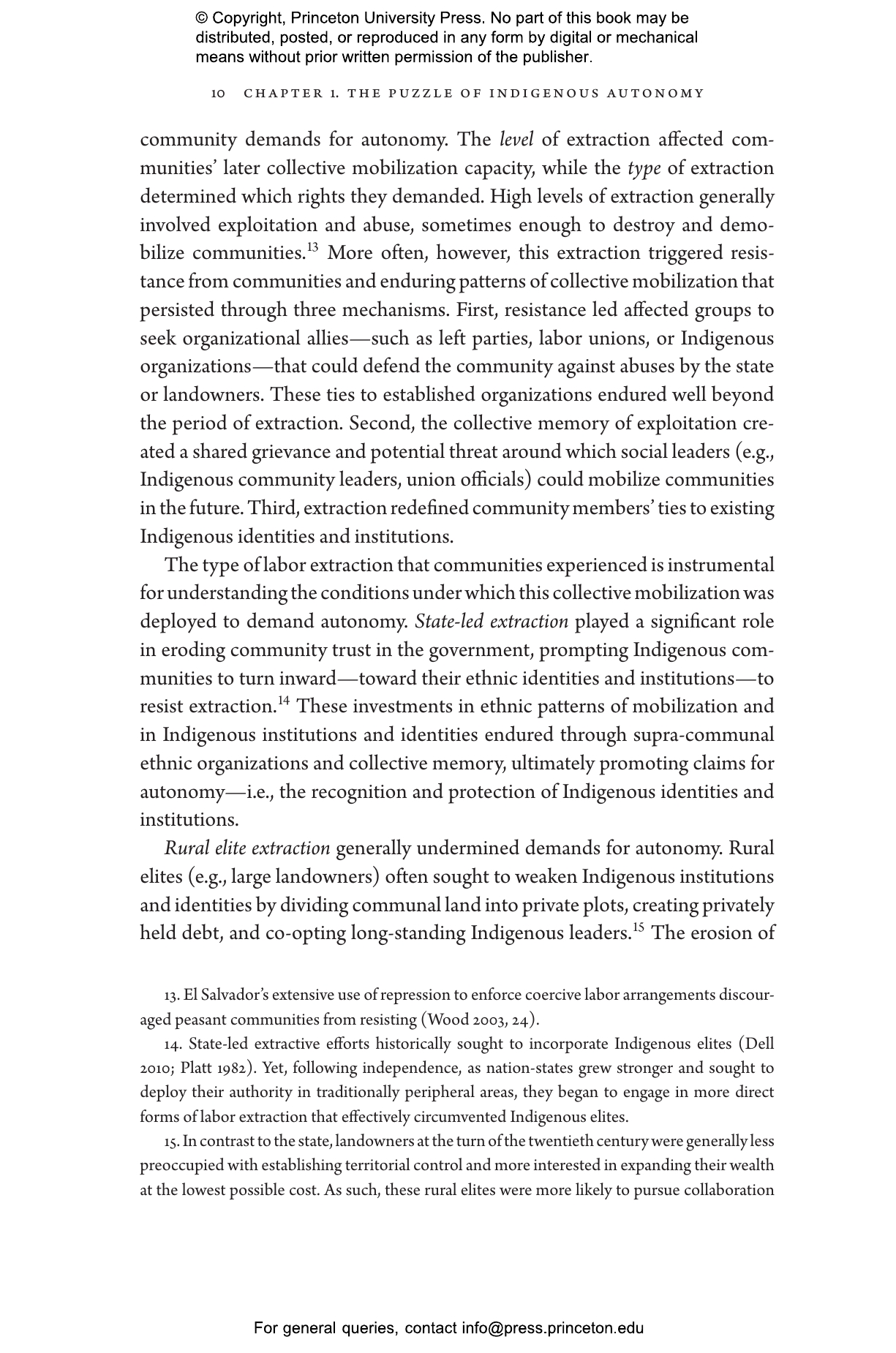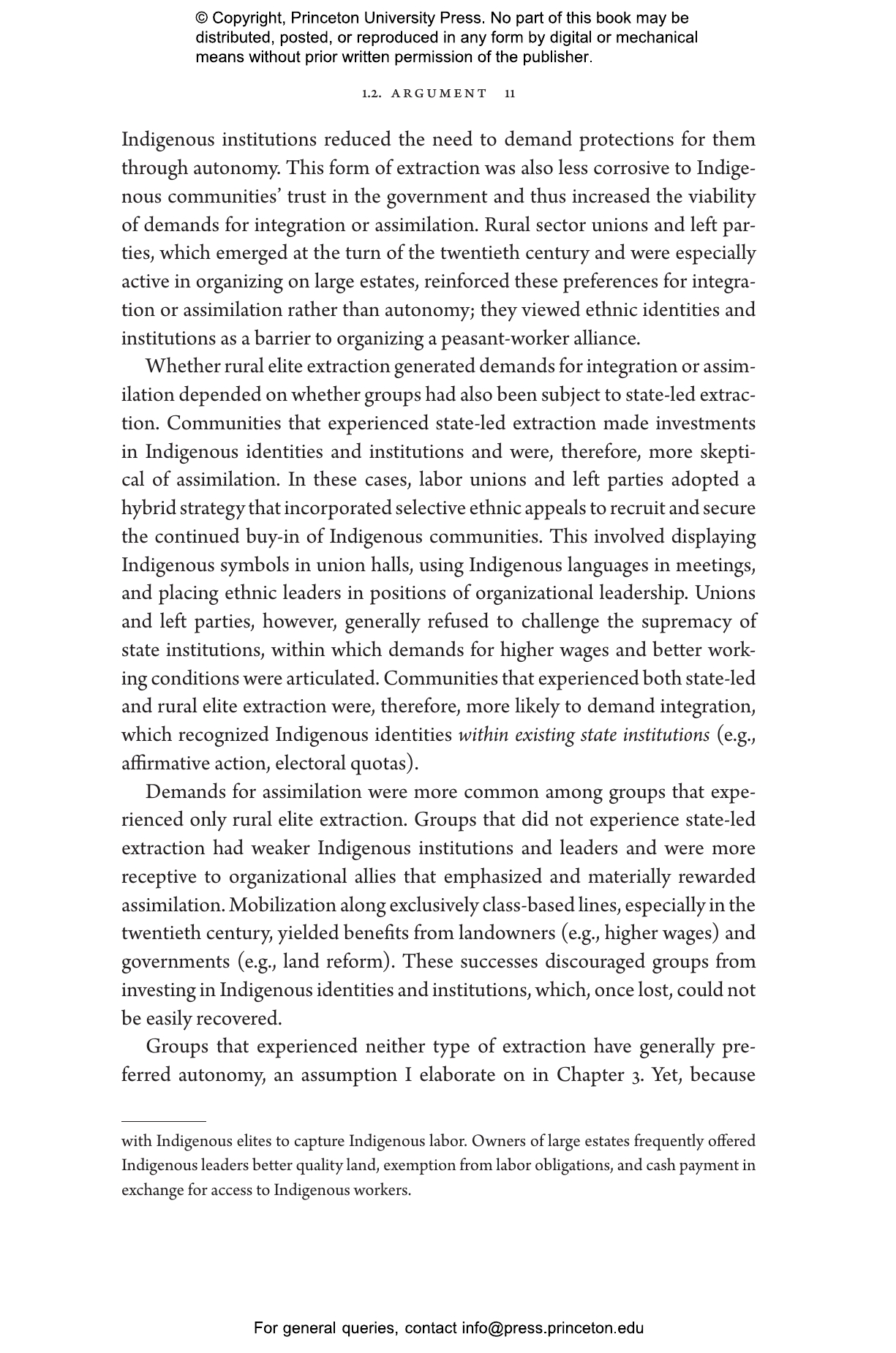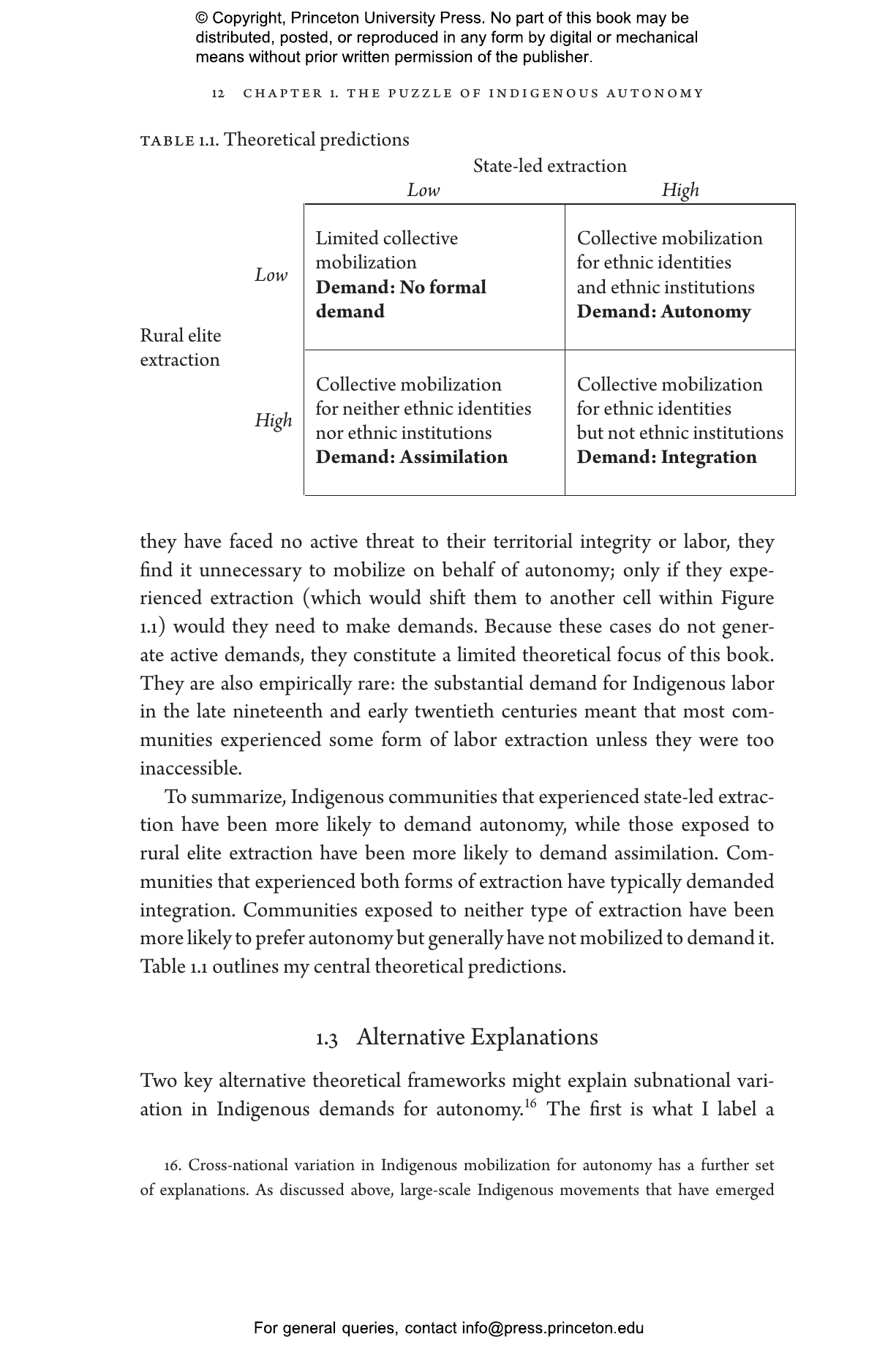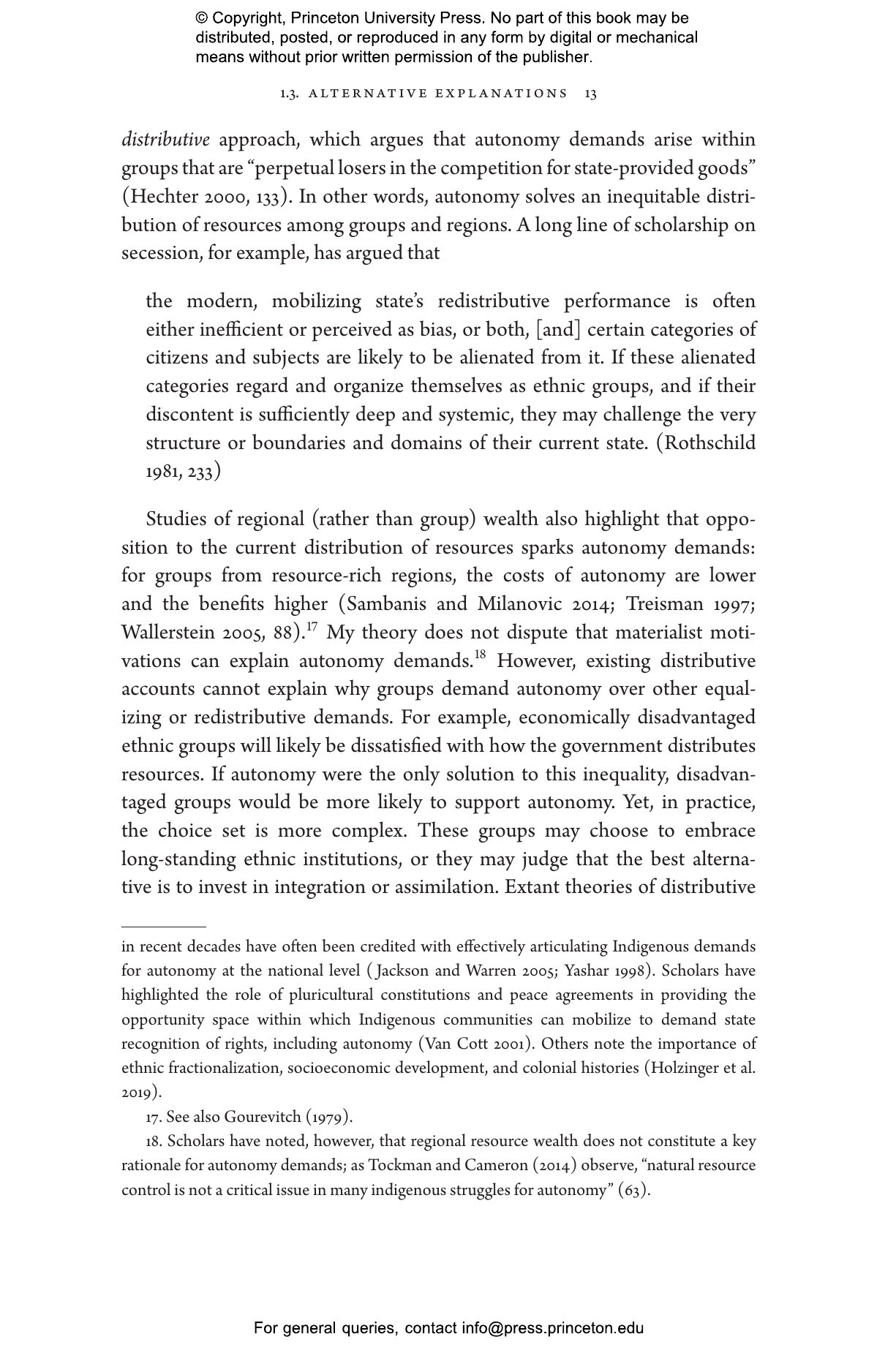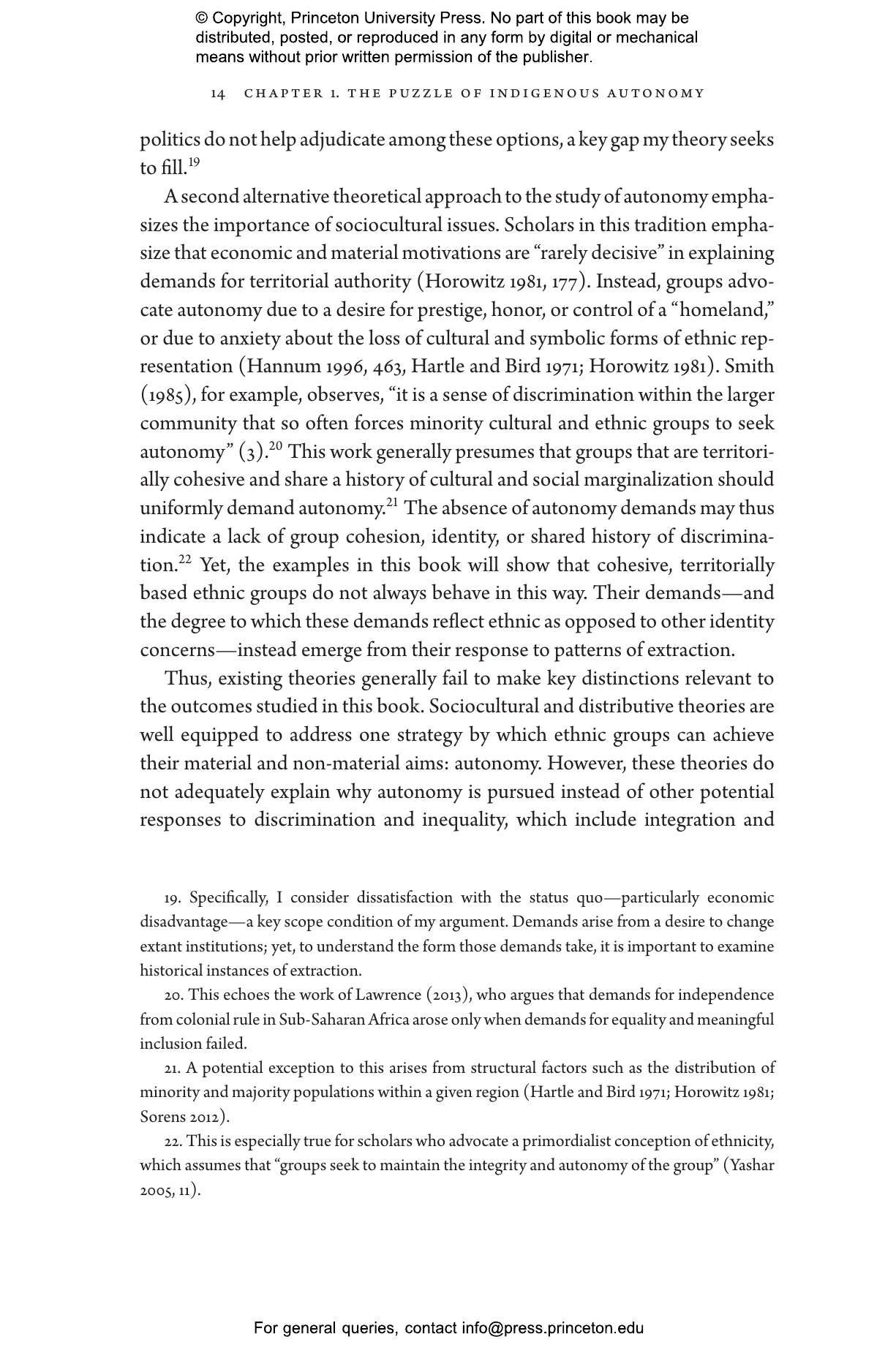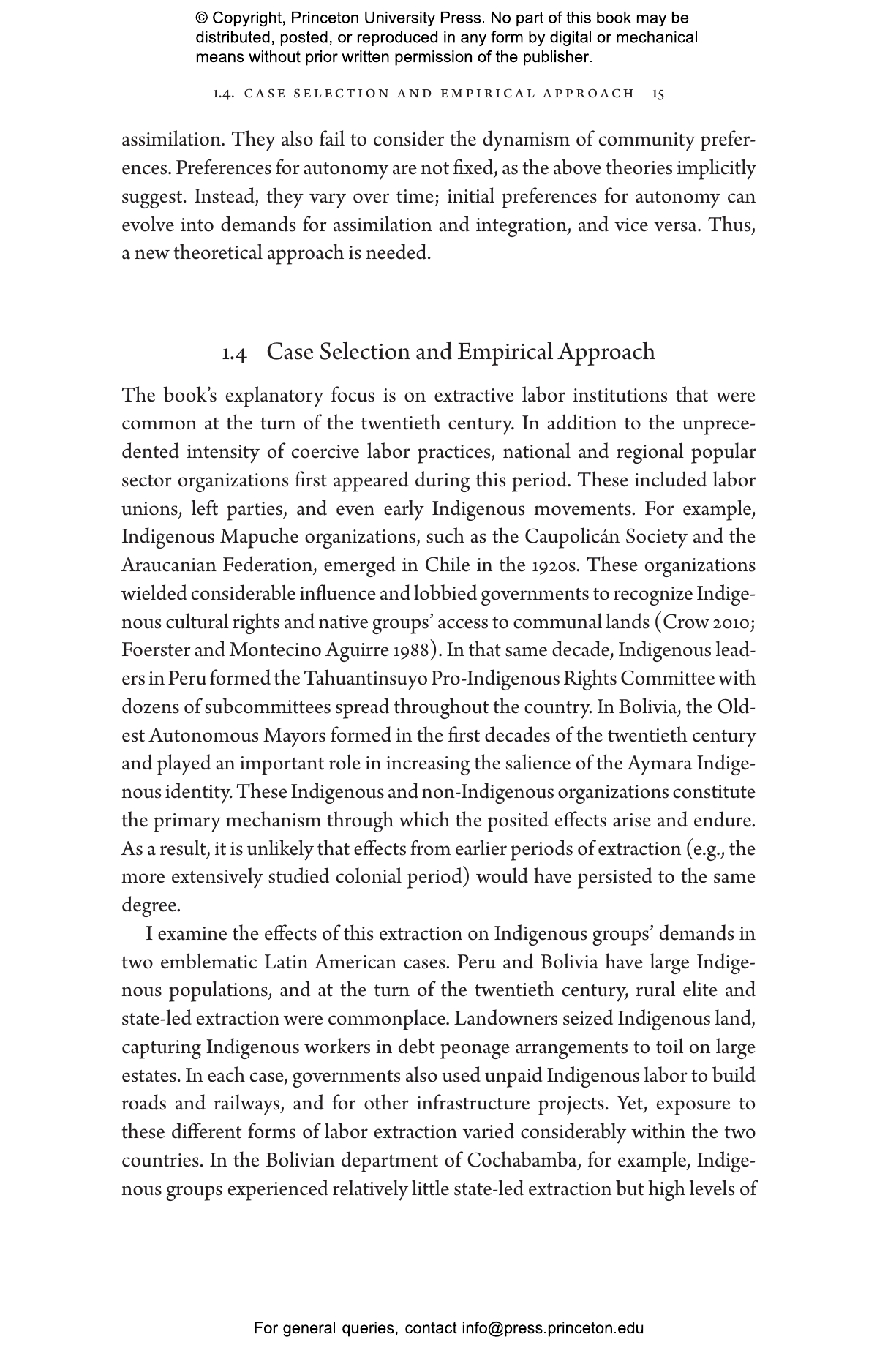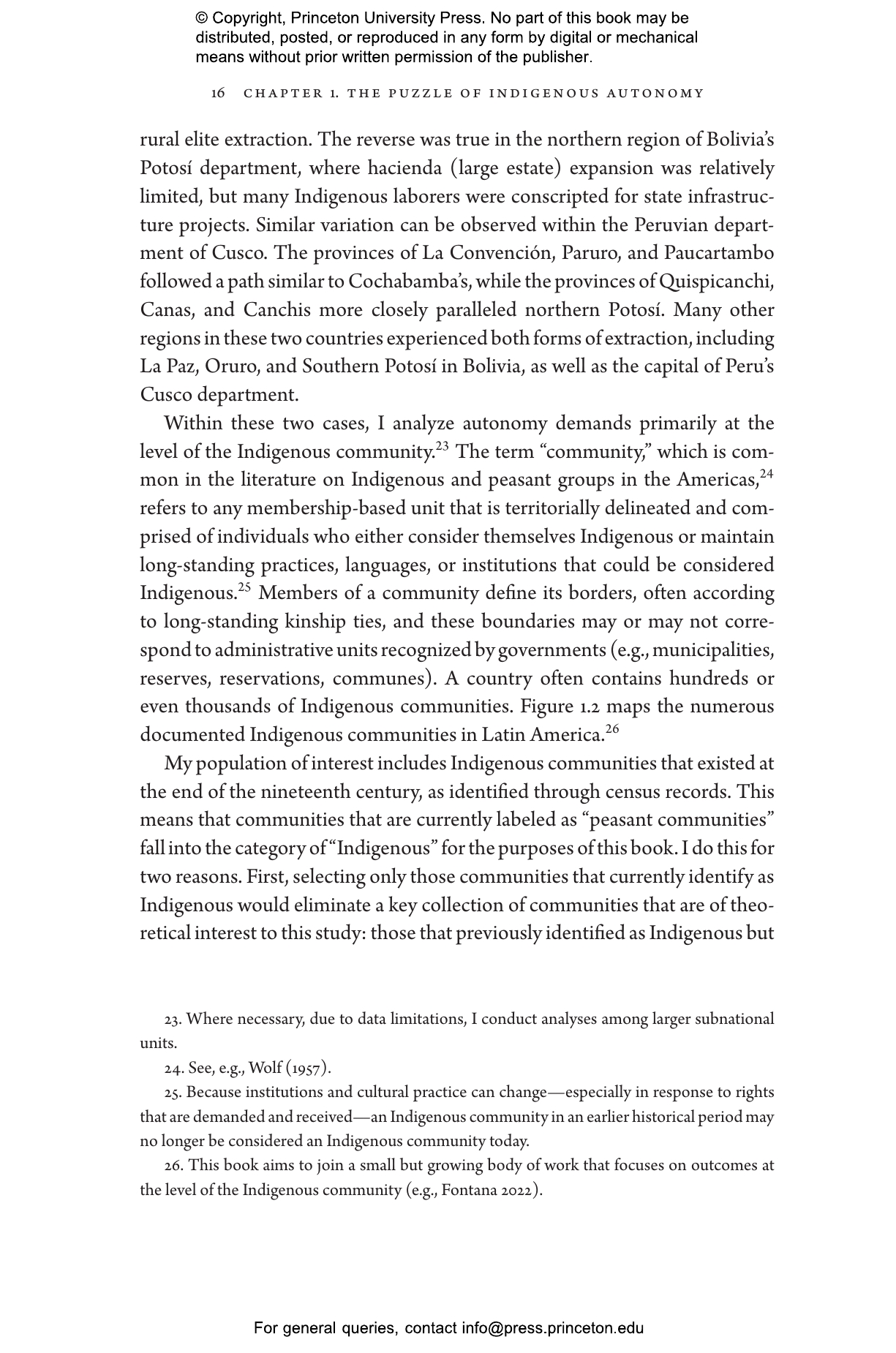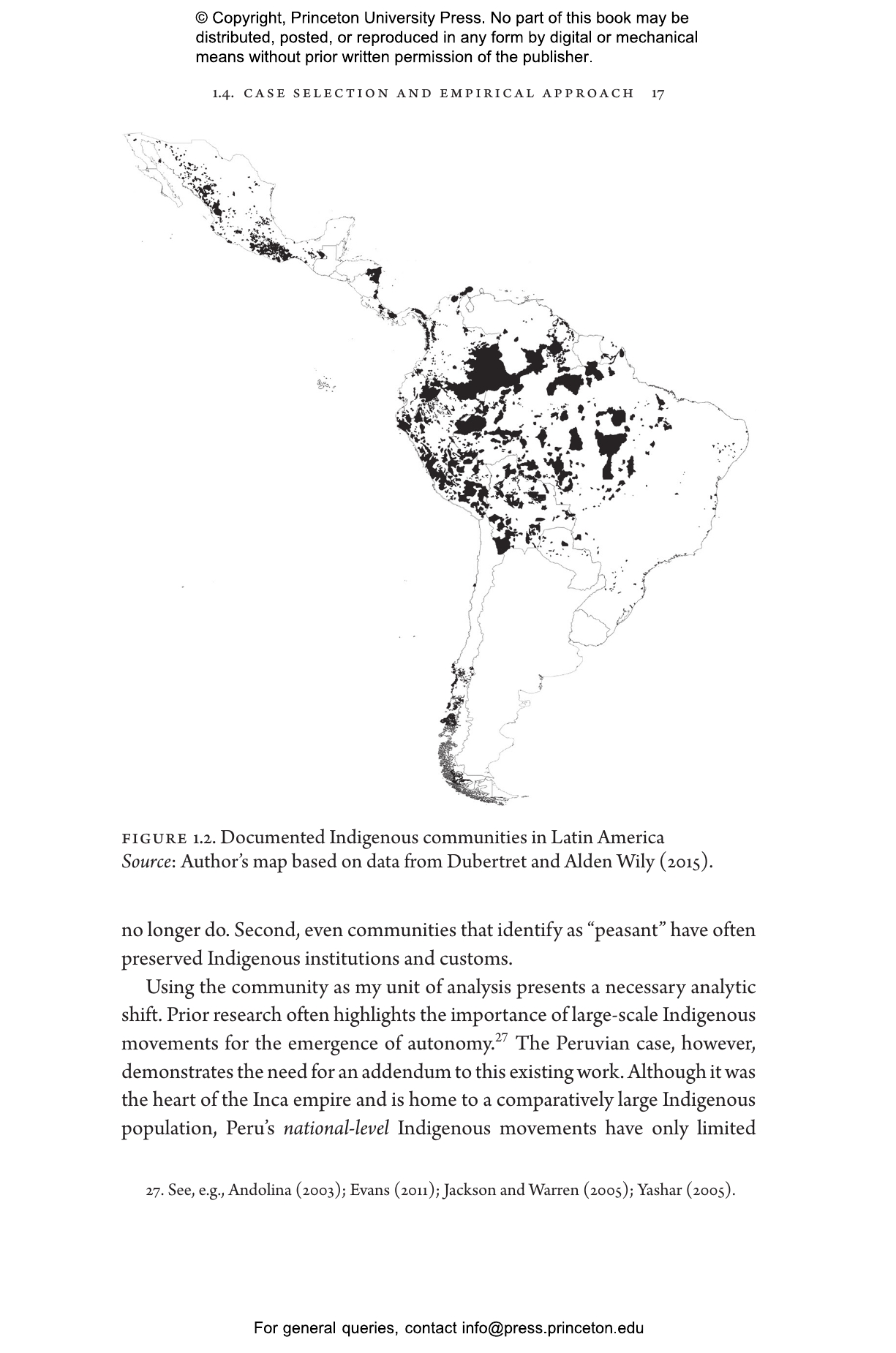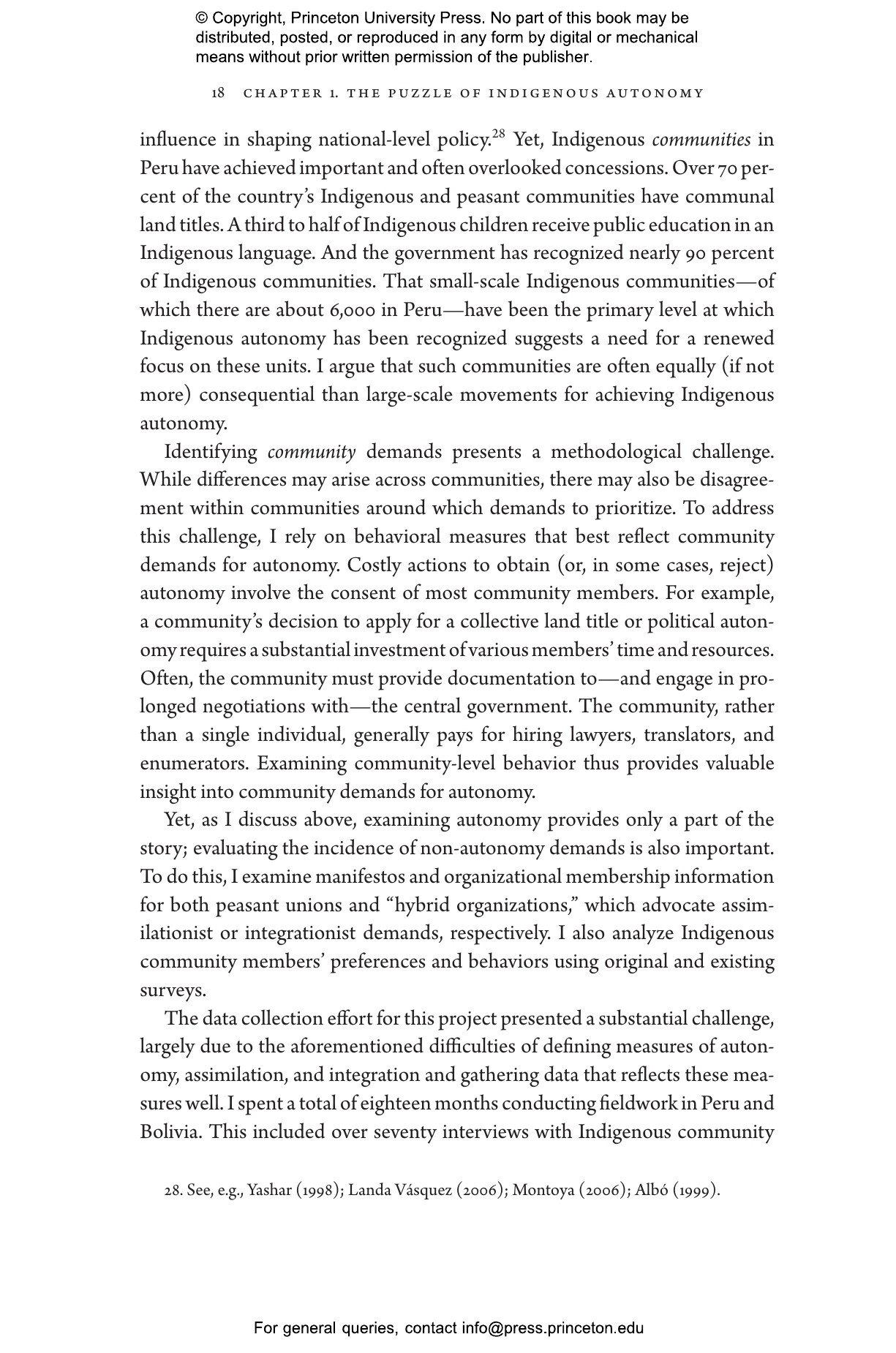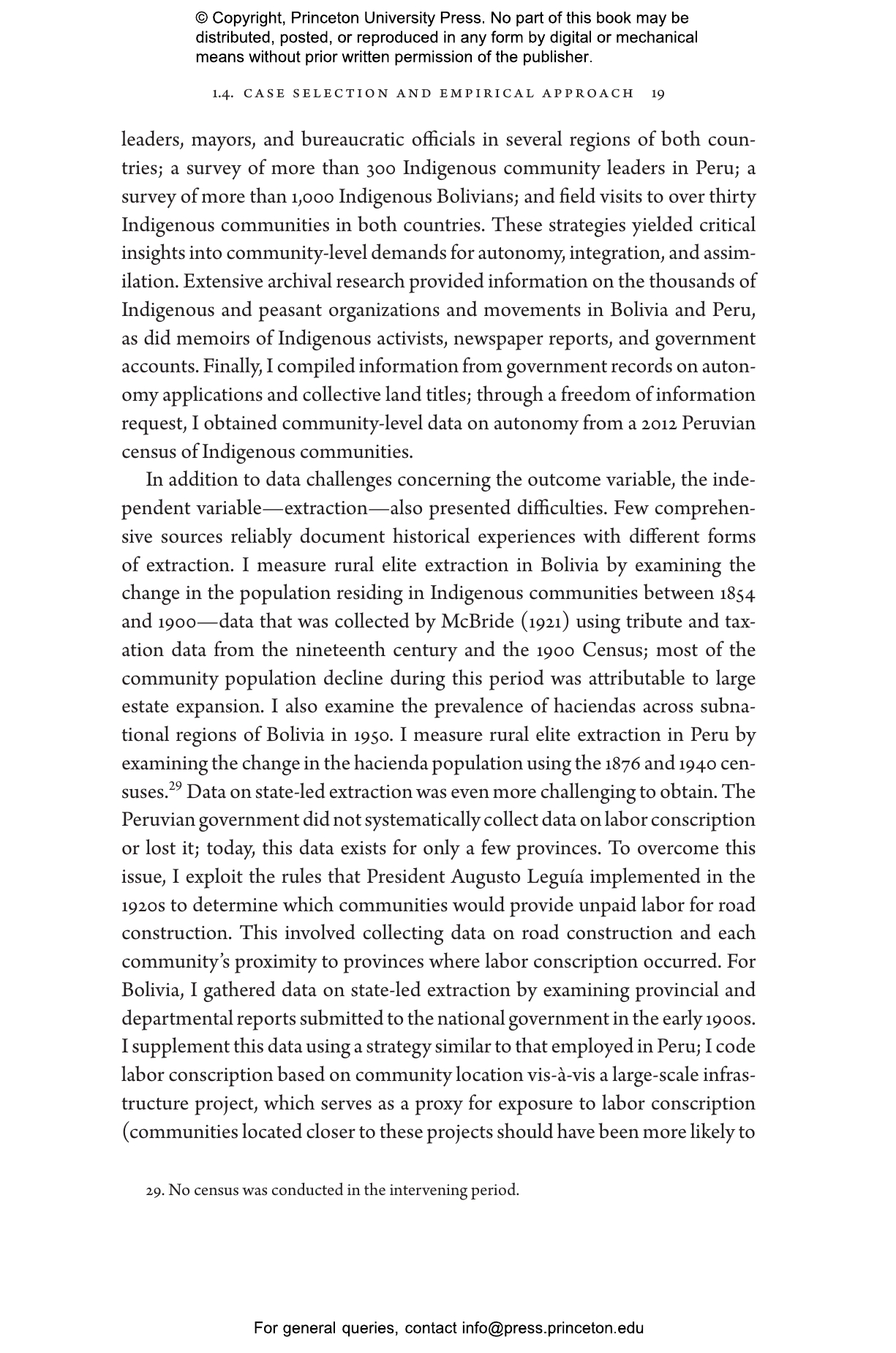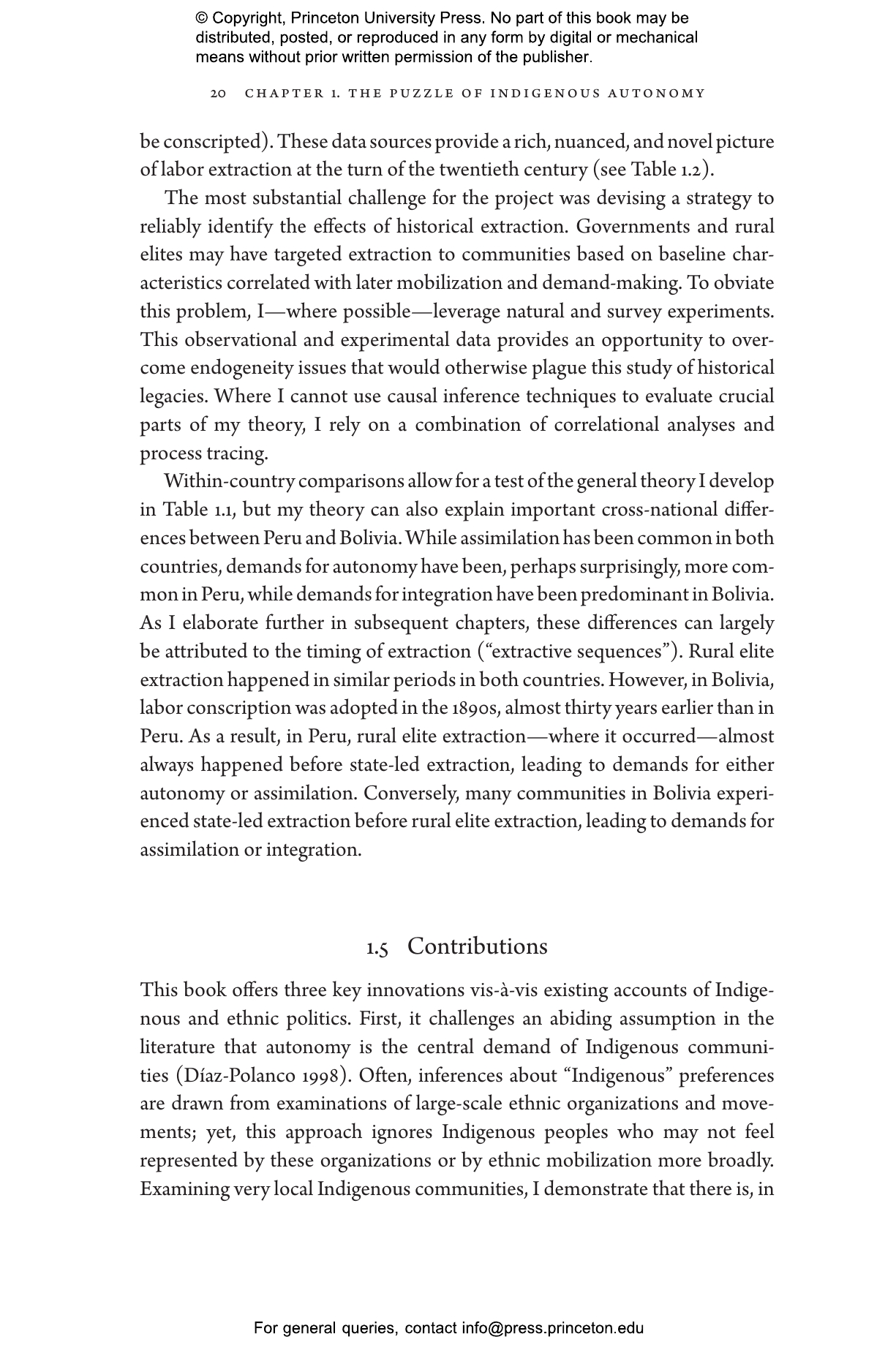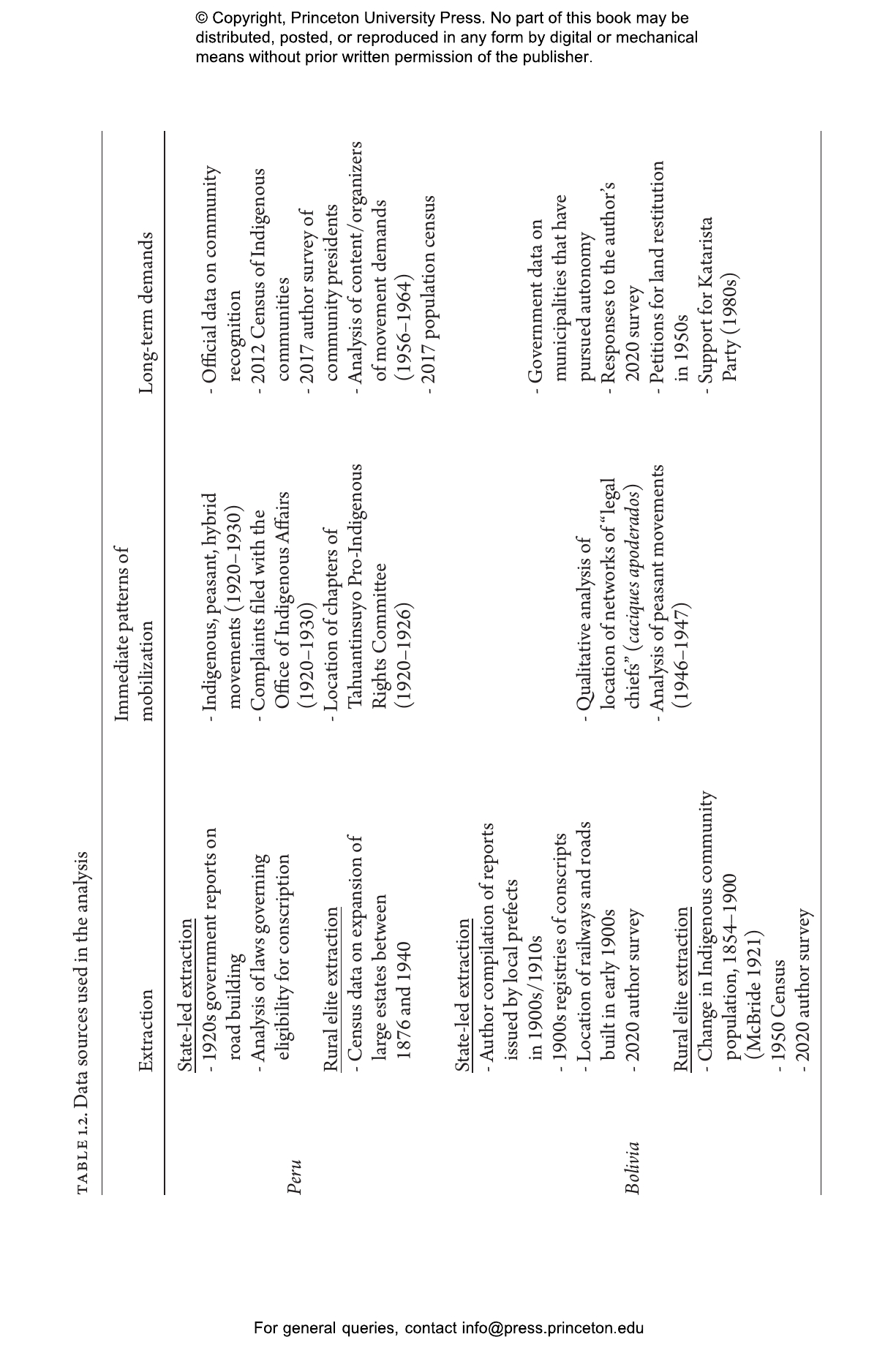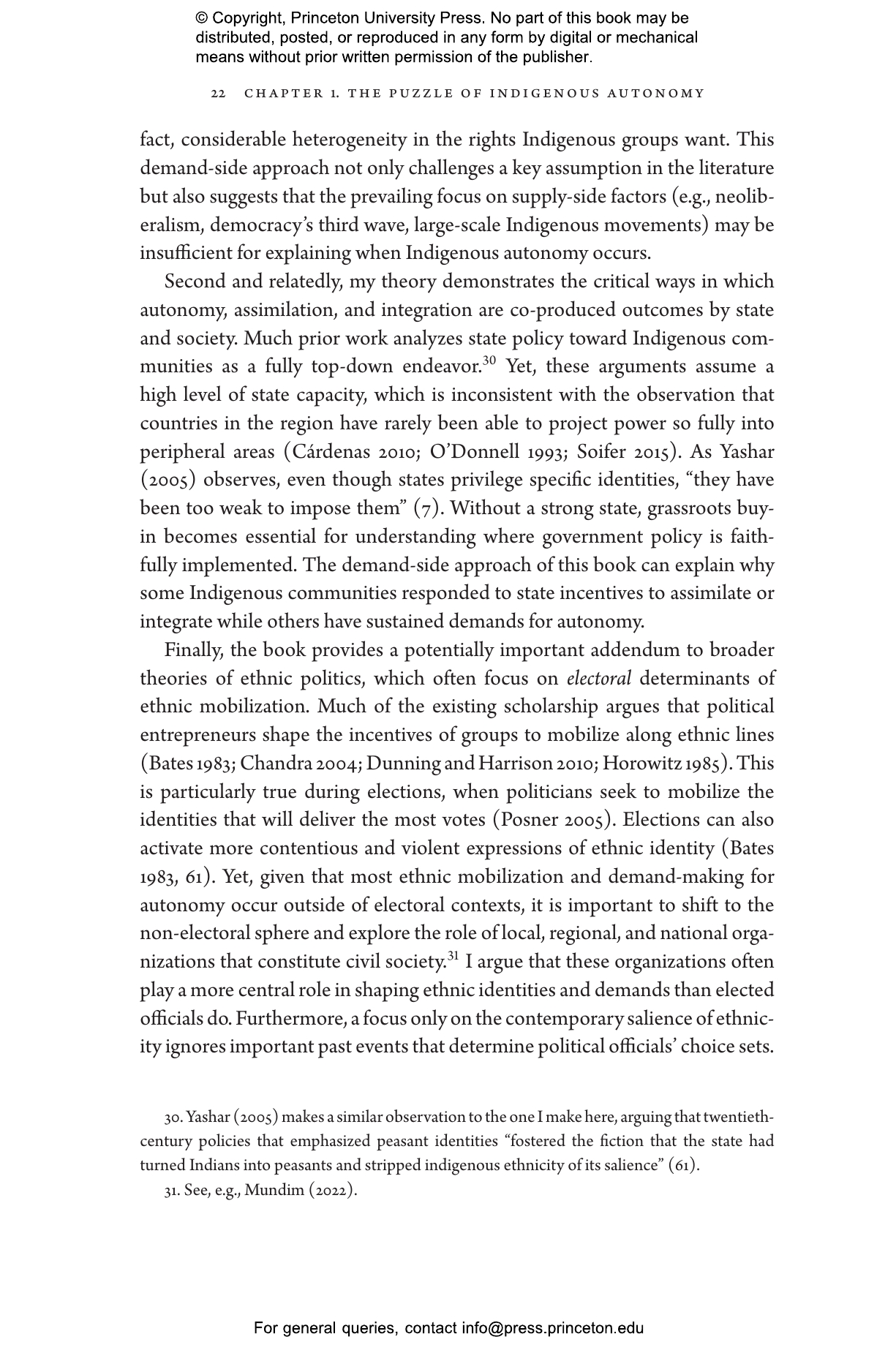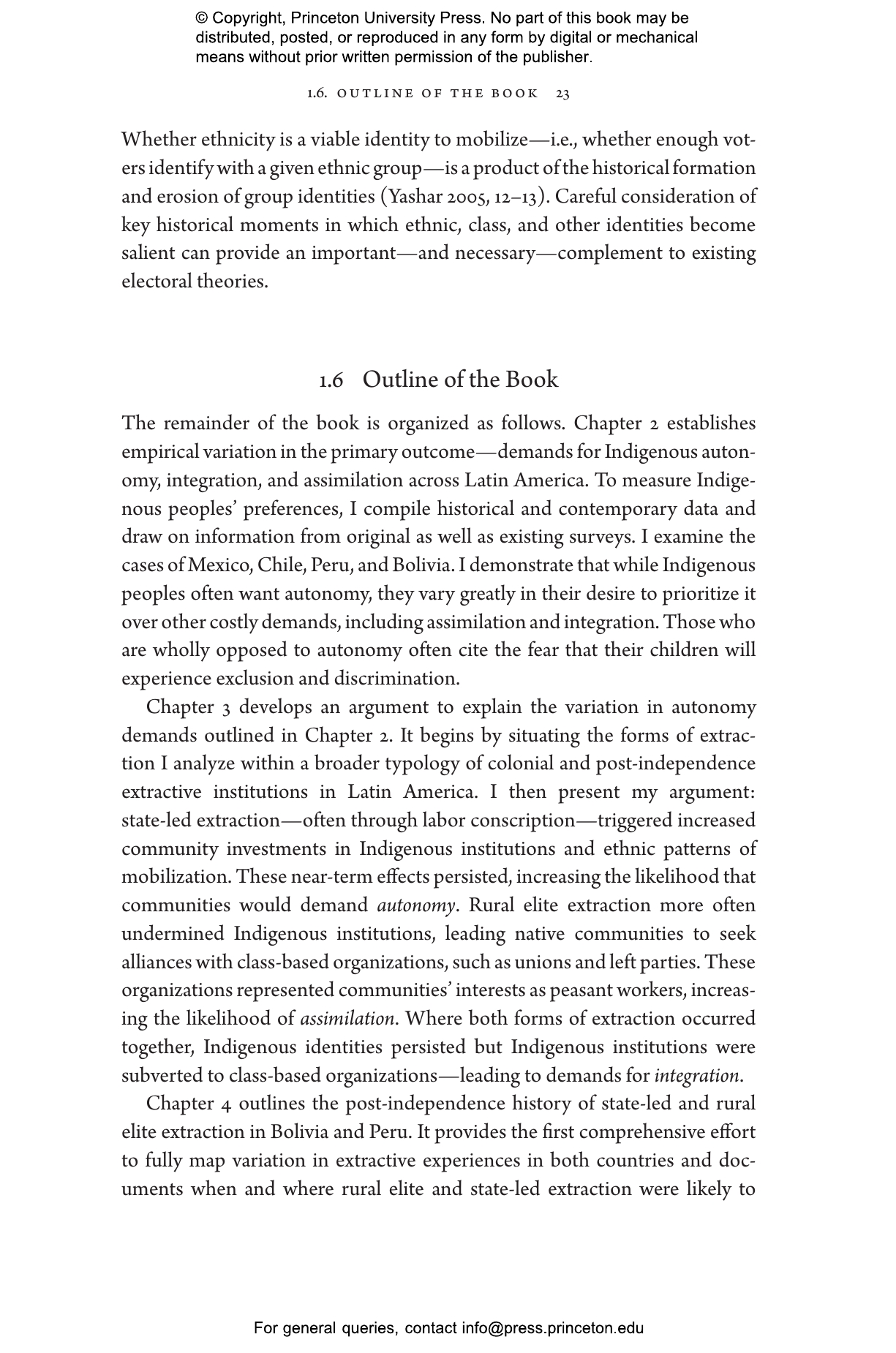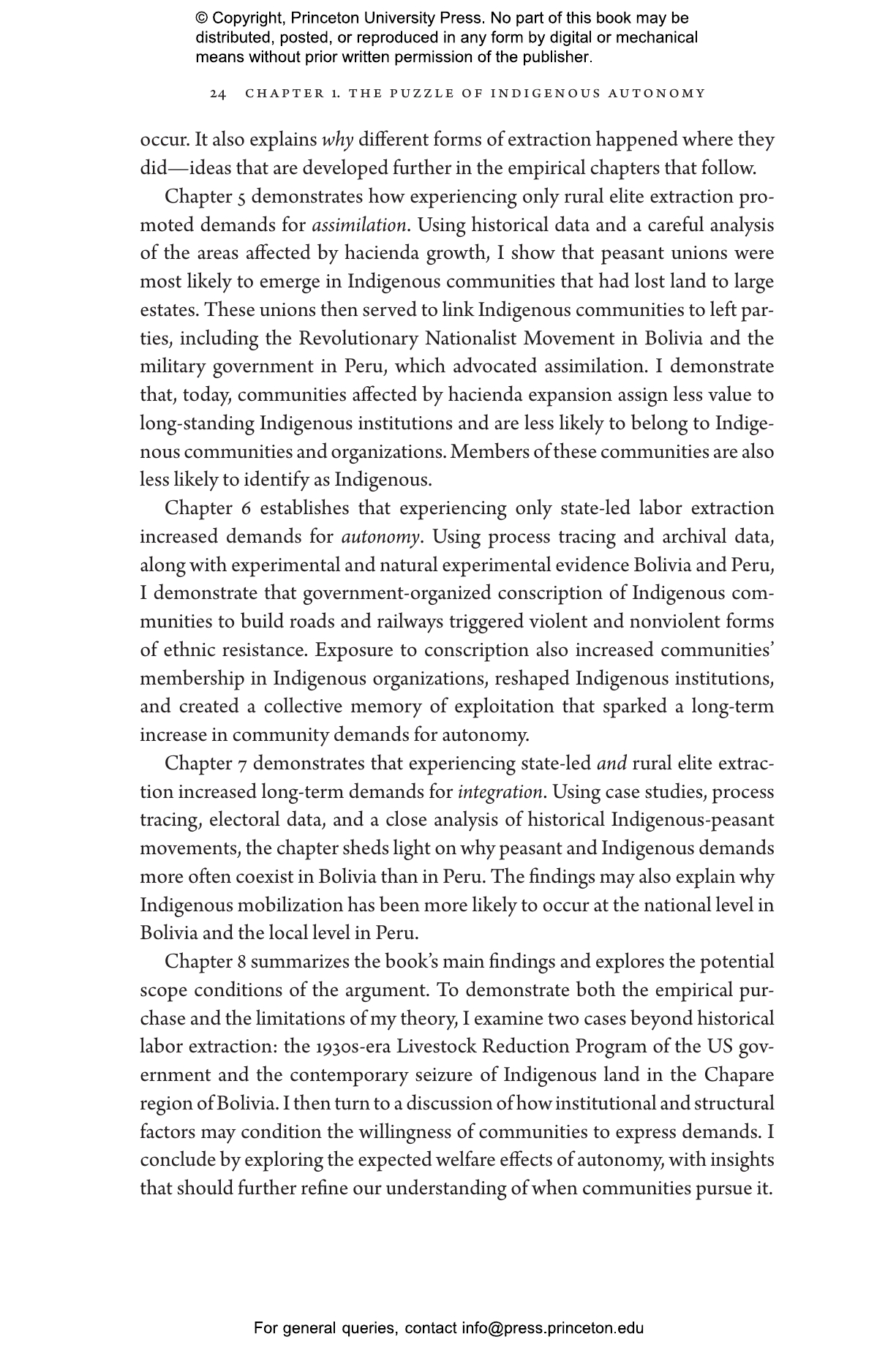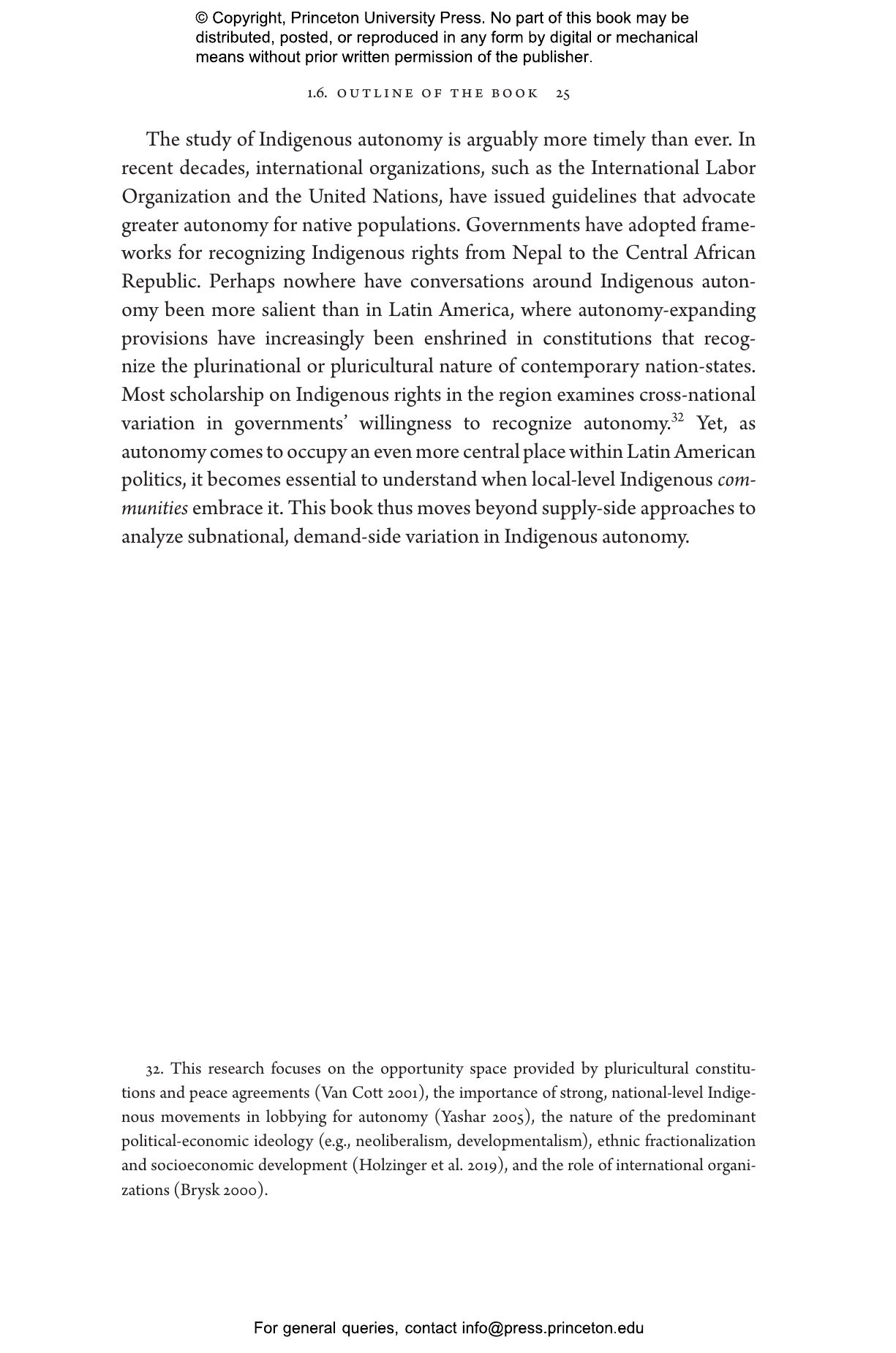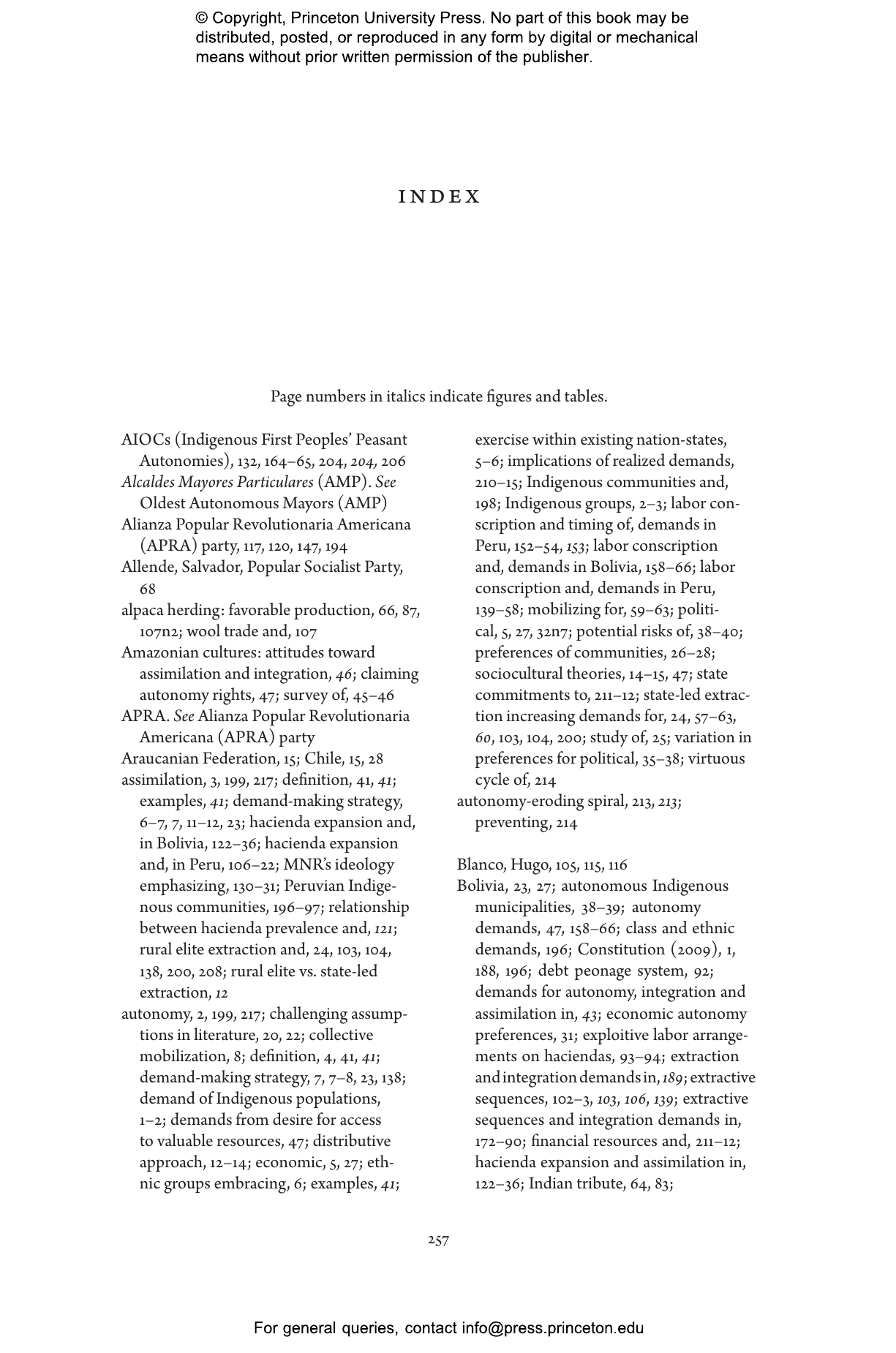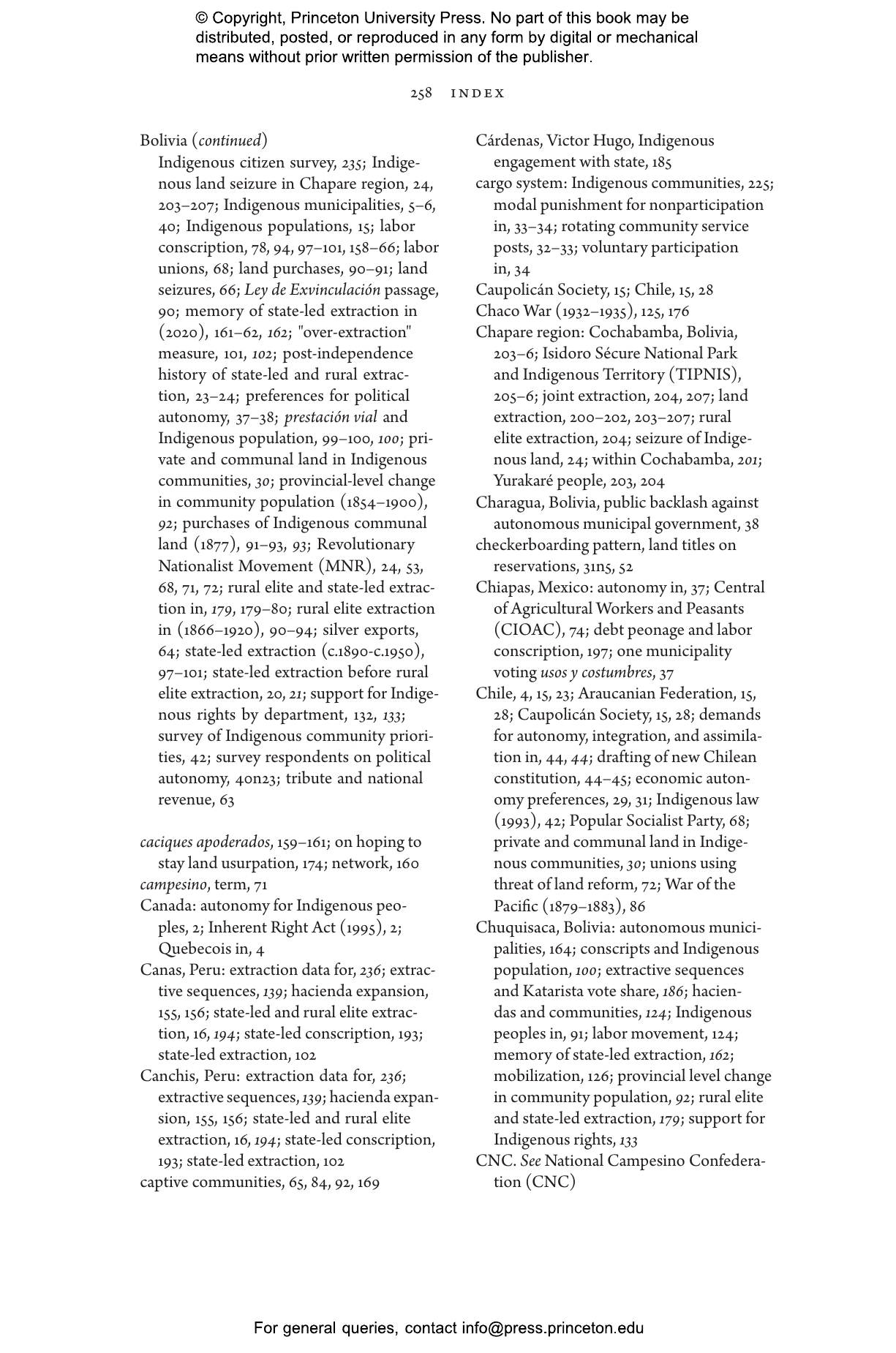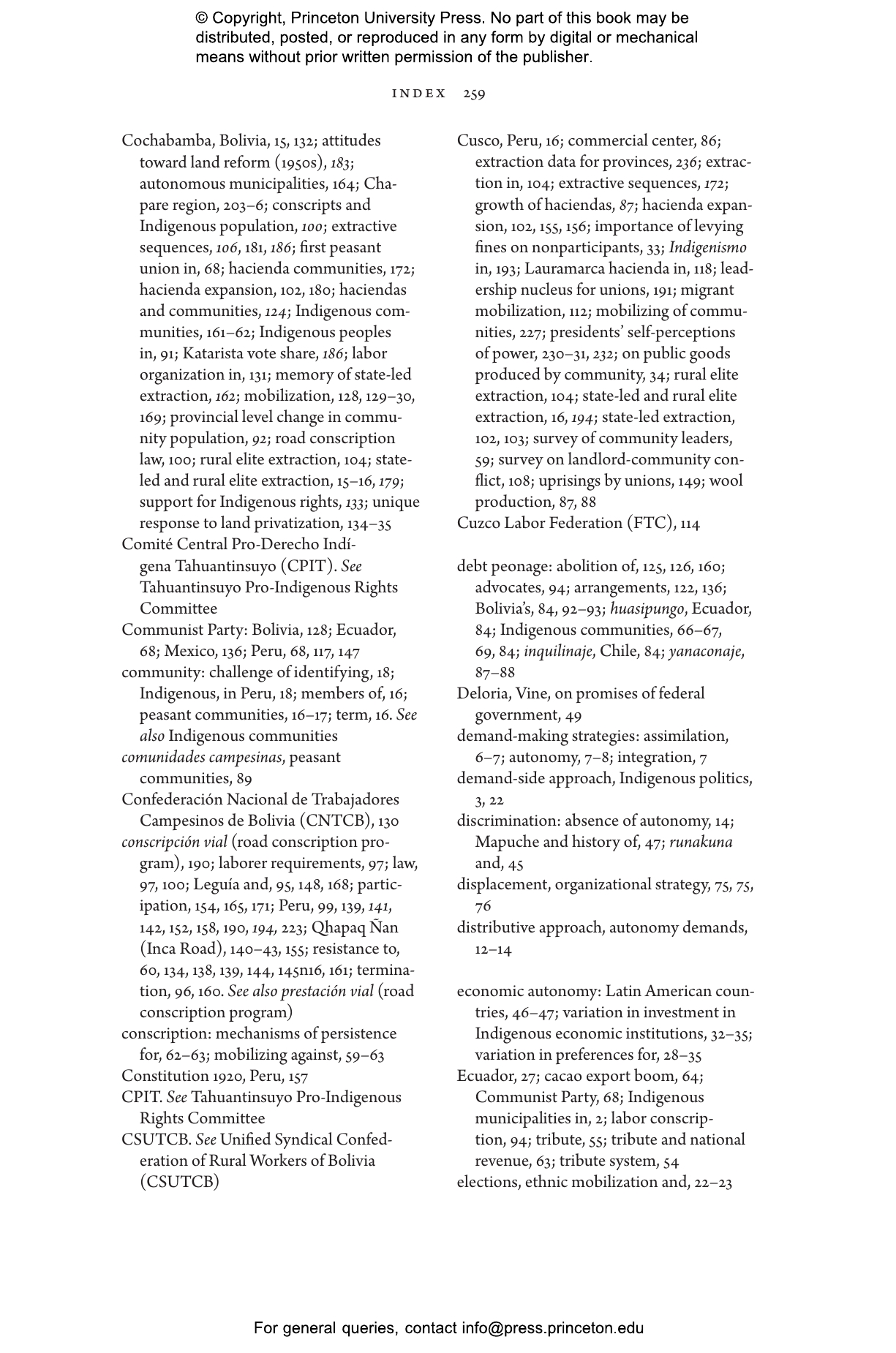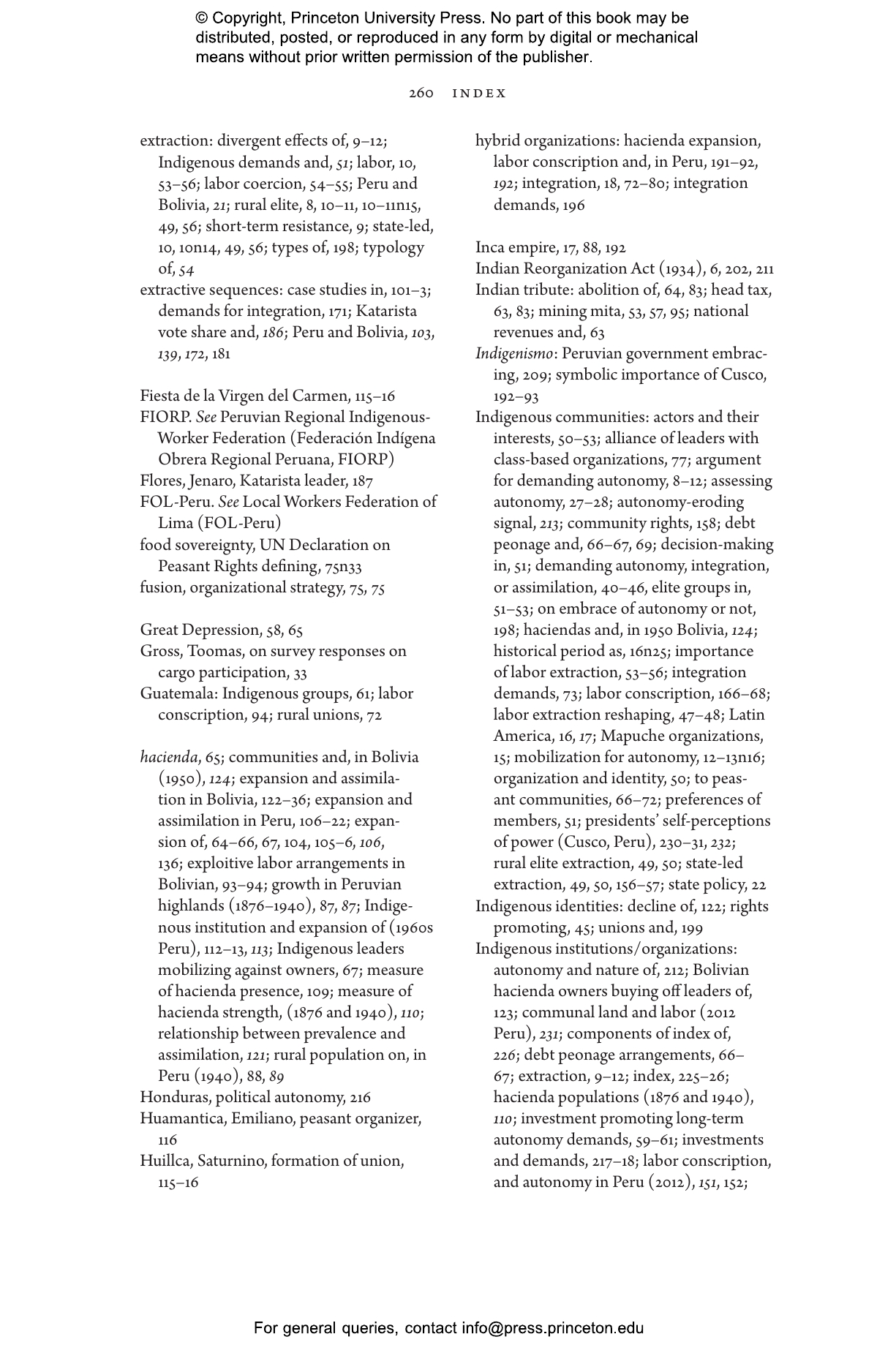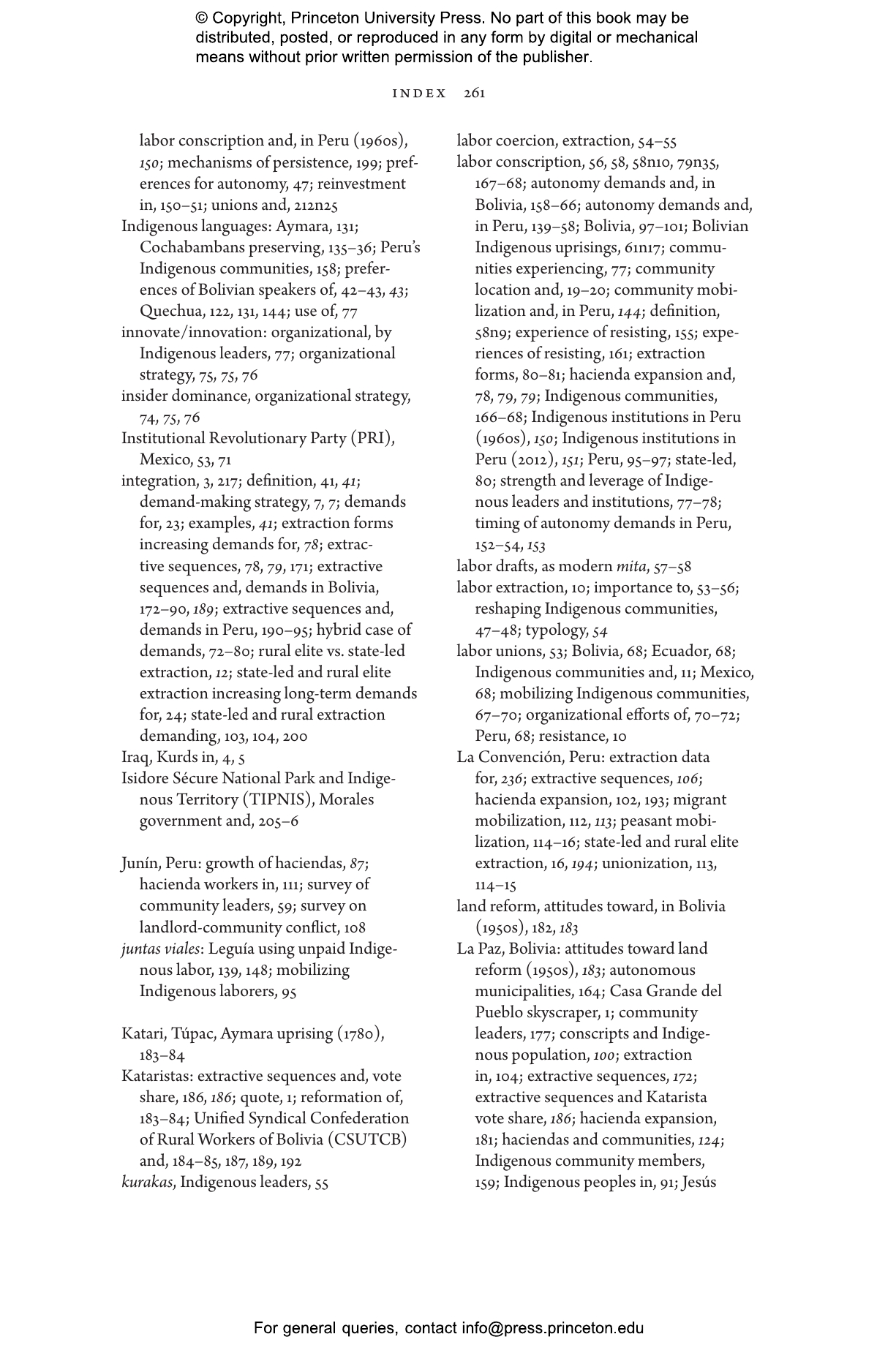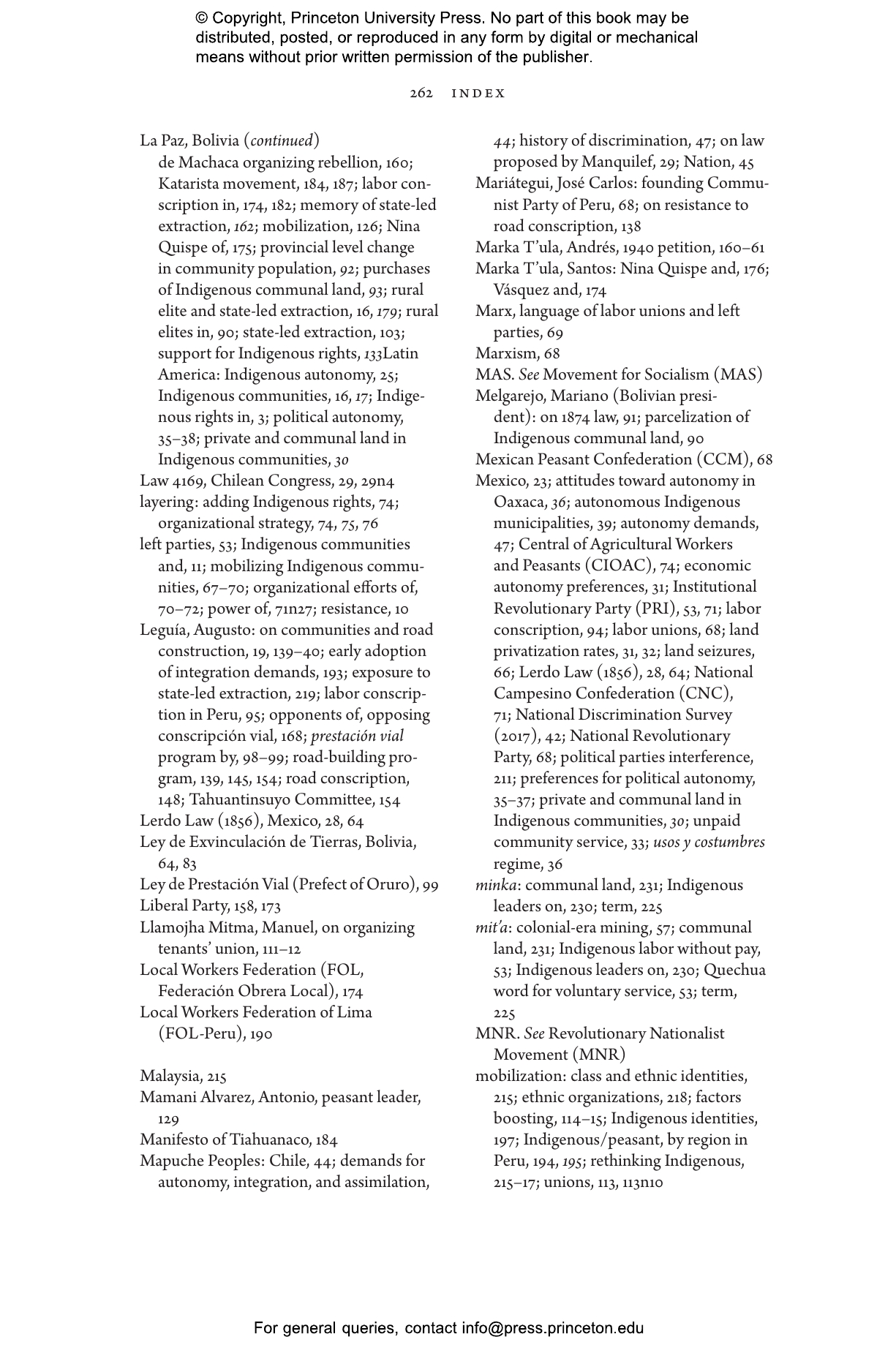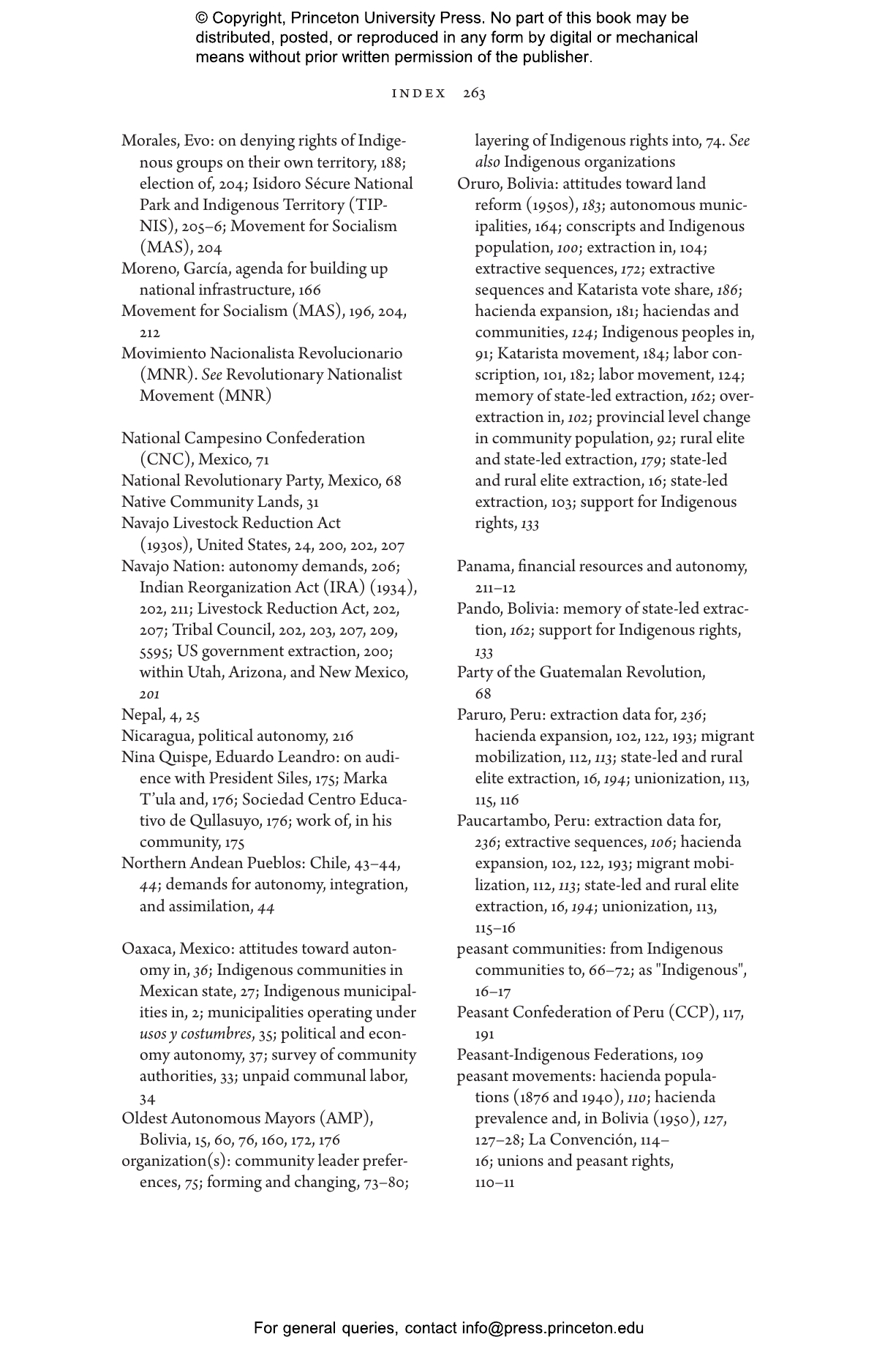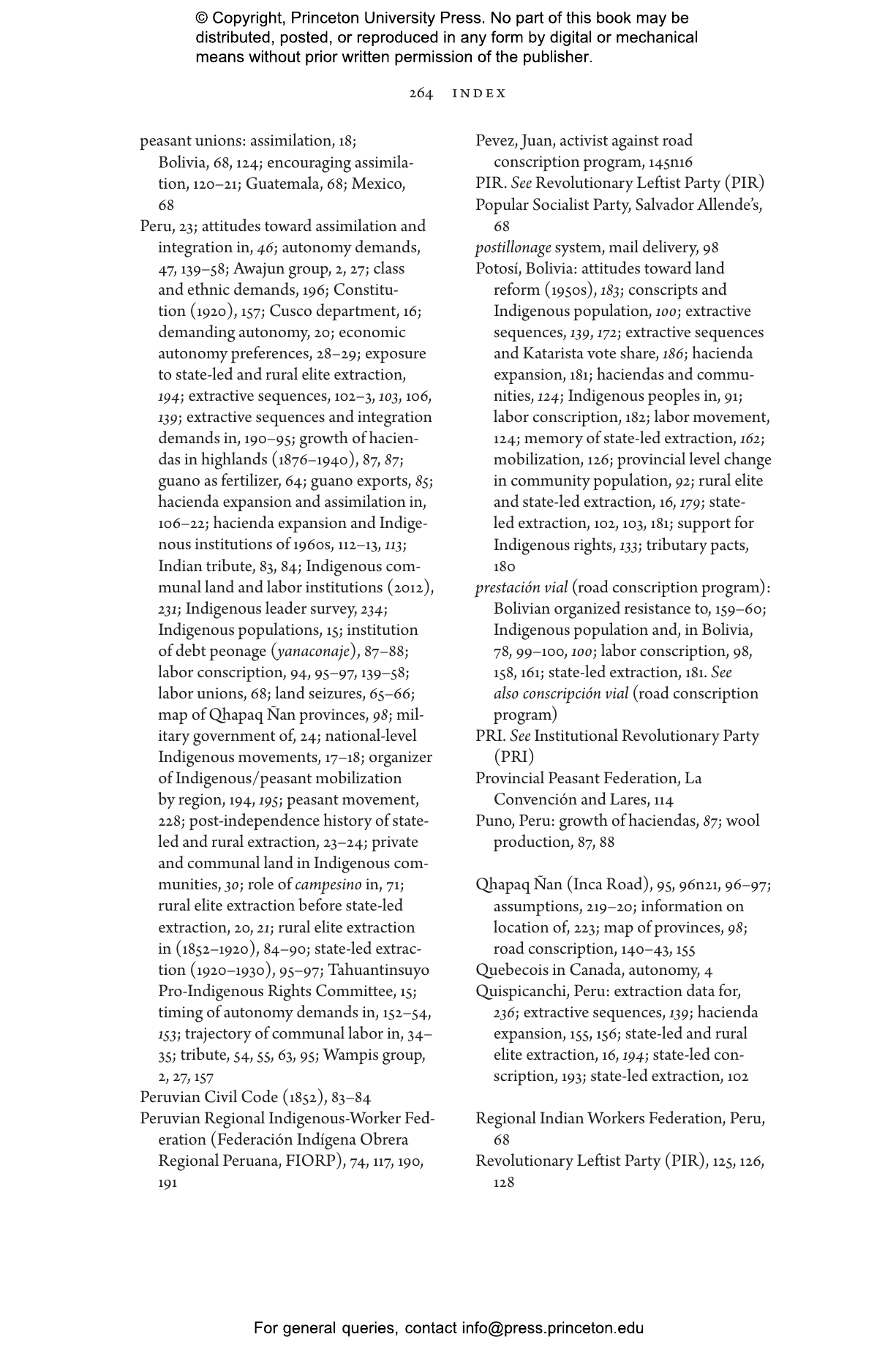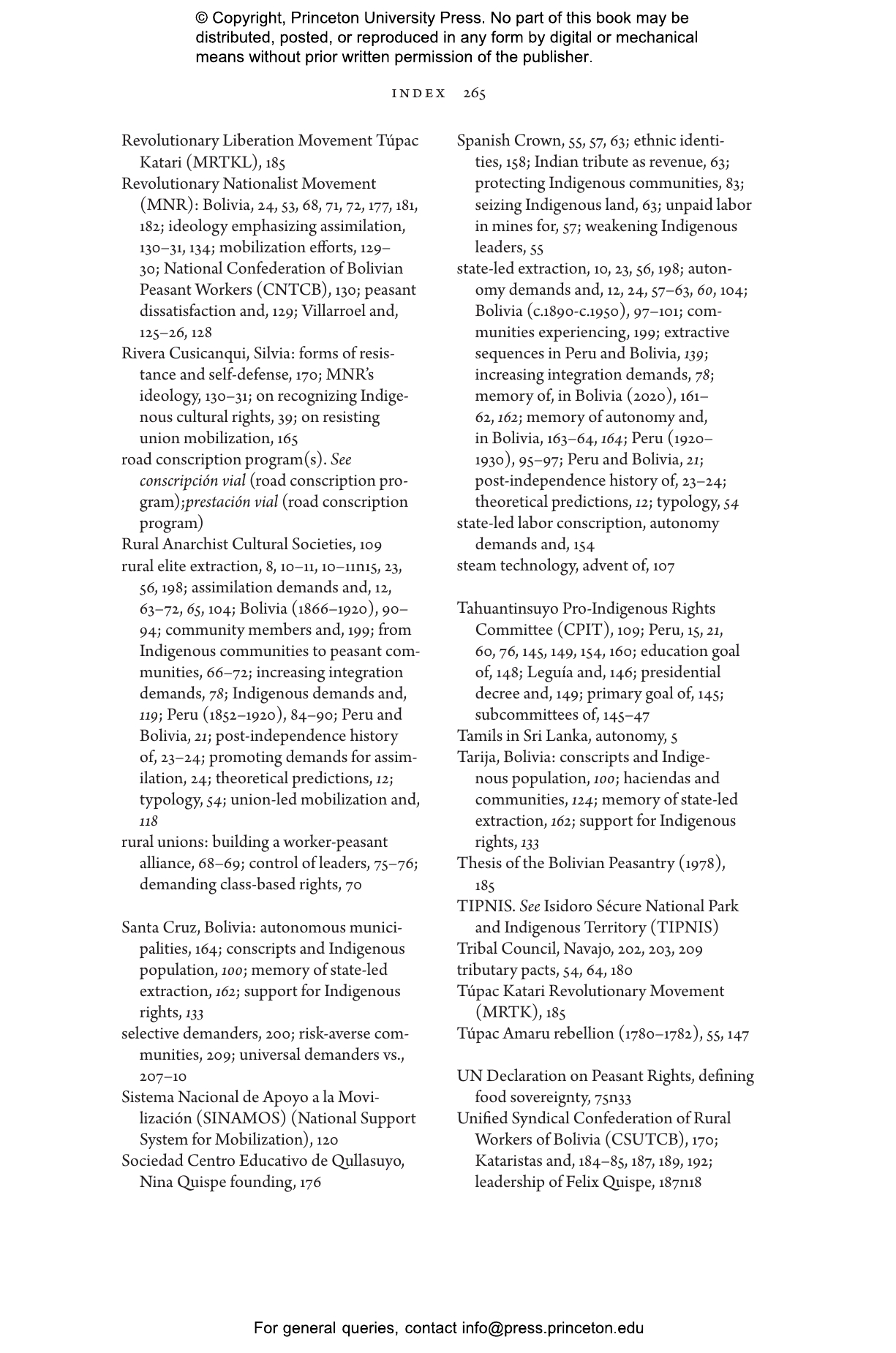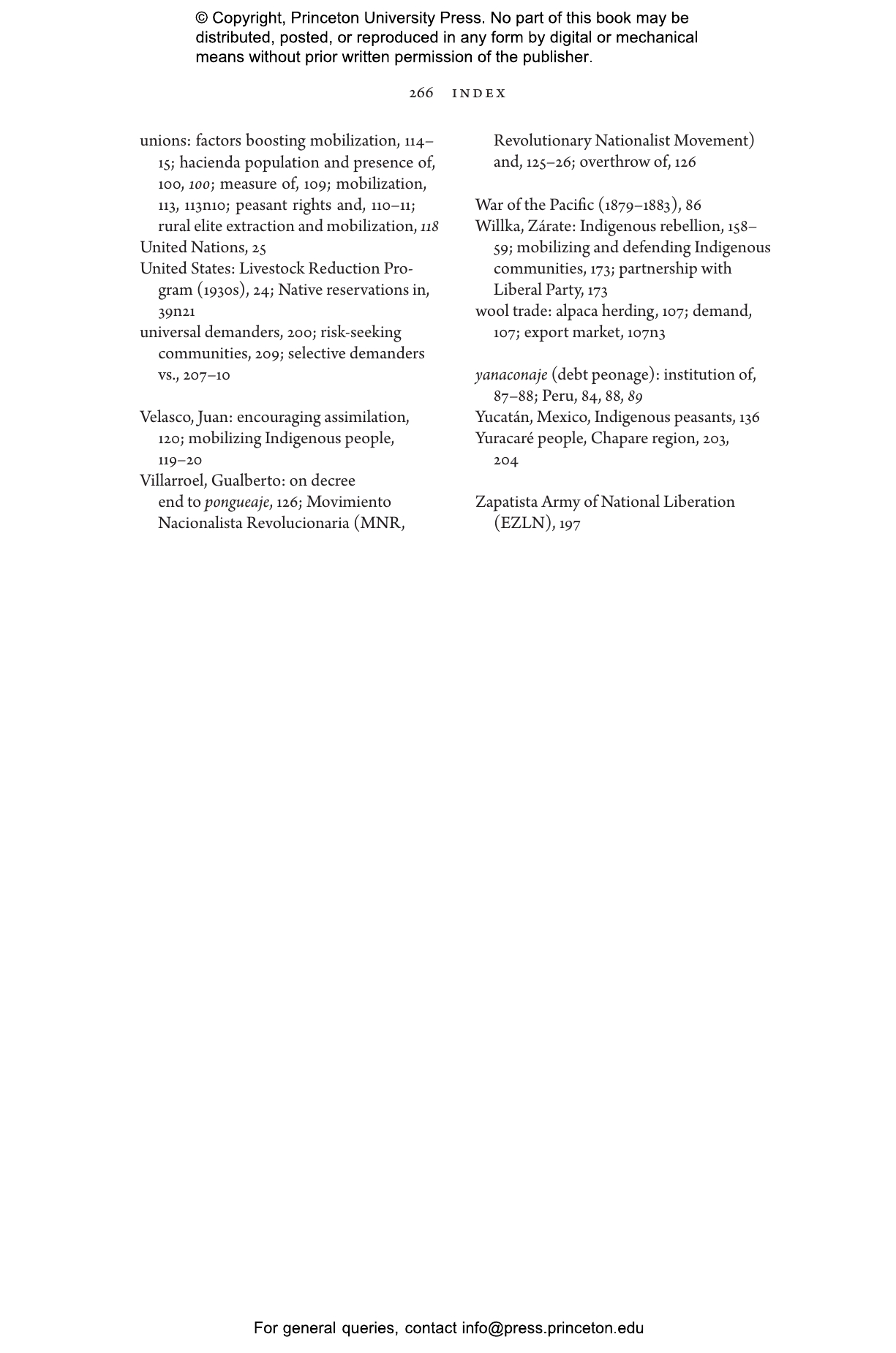From the onset of colonialism, Indigenous communities have faced seizure of their land, labor, and resources by non-Indigenous actors. In The Long Shadow of Extraction, Christopher Carter argues that the native groups’ resistance to extraction took distinct forms, and that this variation explains why some communities demanded autonomy while others demanded integration or assimilation. Countering existing scholarship that assumes a universal demand for autonomy, Carter shows that some Indigenous communities in fact refused government offers to recognize their local political authority and longstanding economic institutions.
Carter argues that contemporary Indigenous demands were forged in early twentieth-century efforts to resist extraction. Drawing on two emblematic Latin American cases, Peru and Bolivia, Carter shows that in communities where traditional Indigenous leaders organized resistance, ethnic mobilization occurred and gave rise to enduring demands for autonomy, or state recognition of Indigenous identities and institutions. In communities where unions and leftist parties organized resistance, class-based mobilization became the norm. This led communities to reject autonomy and demand instead integration (state recognition of Indigenous identities but not Indigenous institutions) or assimilation (state recognition of neither Indigenous identities nor institutions). Carter’s groundbreaking account of Indigenous resistance has important implications for understanding not only the historical emergence of autonomy but variations in identity-based mobilization in multiethnic democracies.
Christopher L. Carter is assistant professor of politics and the John L. Nau III Assistant Professor in the History and Principles of Democracy at the University of Virginia.
34162
“An important contribution to the literature on indigenous politics and state-building and a major conceptual advance. I finished reading the book convinced by the evidence presented in support of the main claim, and also convinced that this book will have a large and important impact on the field.”—Kate Baldwin, Yale University
“This book simply is the best of social science, showing how to ask big-picture questions and answer them with rigorous, careful, and empirically appropriate methods and careful referencing and engagement with historical and contemporary scholarship.”—Alisha Holland, Harvard University
“Christopher Carter delivers a masterful study of indigenous politics in Latin America. At the core of the book is a new vision of how exploitation and resistance in the past led indigenous communities to pursue strategies of accommodation, integration, or autonomy in the present. Read this book not only to learn about indigenous politics in Latin America. Read it to learn what outstanding comparative-historical analysis looks like.”—James Mahoney, Northwestern University
“Drawing on administrative records, interviews with Indigenous leaders, original surveys of Indigenous community members and leaders, and natural and survey experiments, Carter’s historically nuanced explanation for variations in Indigenous communities’ demands for autonomy, integration, or assimilation is a methodological tour de force."—Elisabeth Wood, Yale University
“Why do some indigenous communities in Latin America seek autonomy while others pursue strategies of assimilation and integration? Carter locates the answer to this question in the way the communities responded to the exploitation they faced in the early twentieth century. His argument and evidence underscore the historical roots of contemporary political mobilization.”—Daniel N. Posner, University of California, Los Angeles
This publication has been produced to meet accepted Accessibility standards and contains various accessibility features including concise image descriptions, a table of contents, a page list to navigate to pages corresponding to the print source version, and elements such as headings for structured navigation. Appearance of the text and page layout can be modified according to the capabilities of the reading system.
Accessibility Features
-
WCAG v2.2
-
WCAG level AA
-
Table of contents navigation
-
Single logical reading order
-
Short alternative textual descriptions
-
Print-equivalent page numbering
-
Landmark navigation
-
Index navigation
-
Epub Accessibility Specification 1.1
-
ARIA roles provided
-
All non-decorative content supports reading without sight
-
No known hazards or warnings


